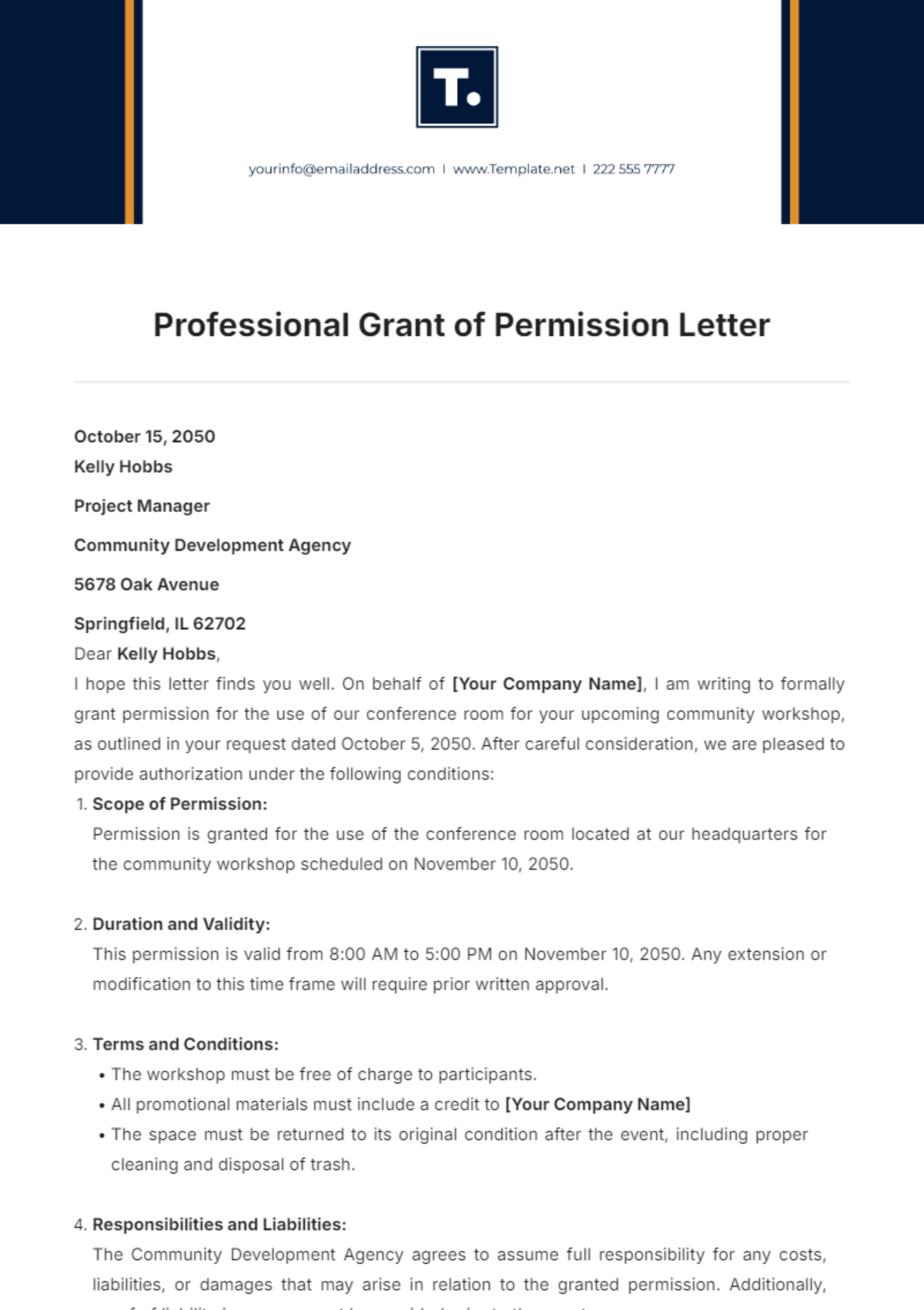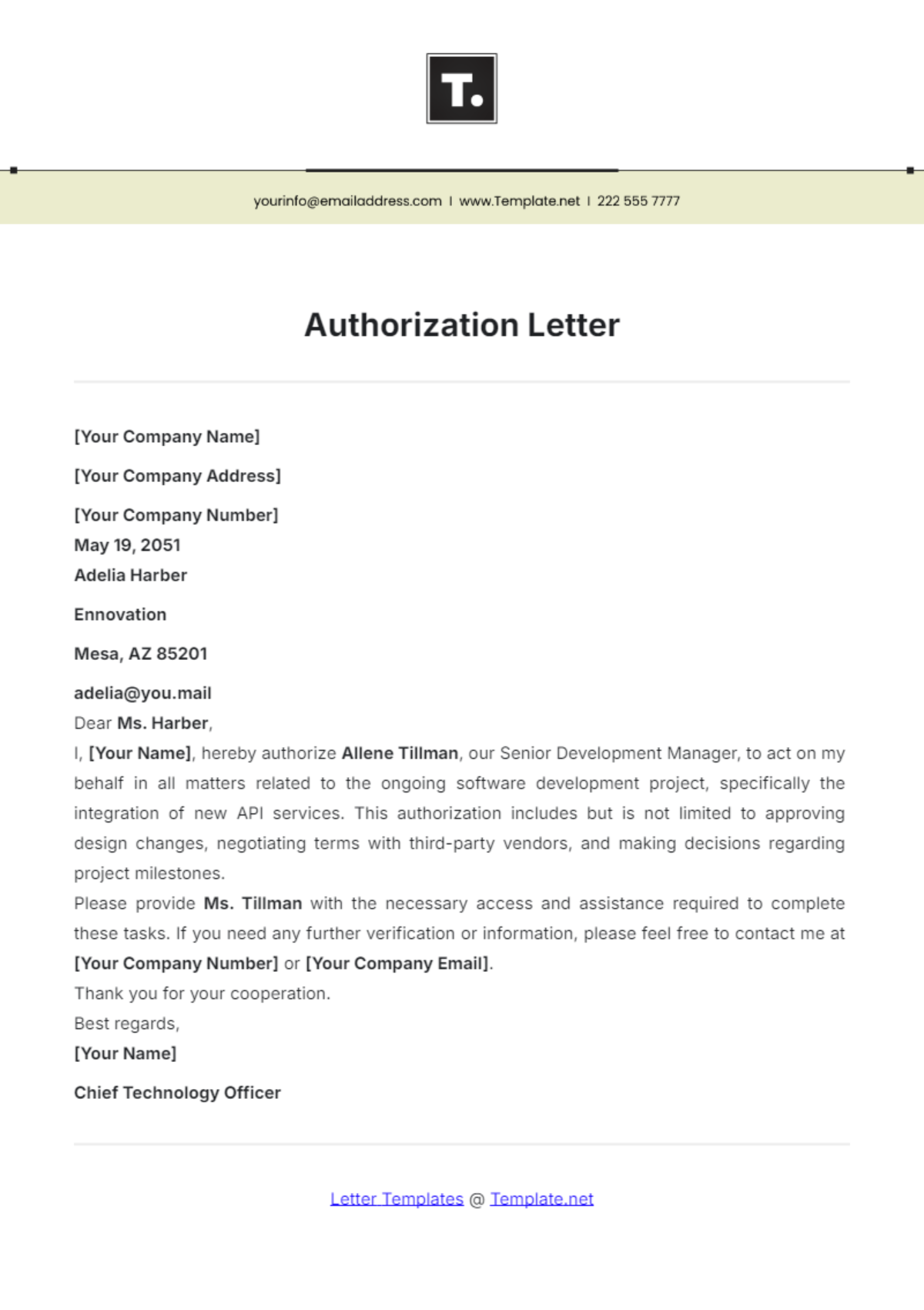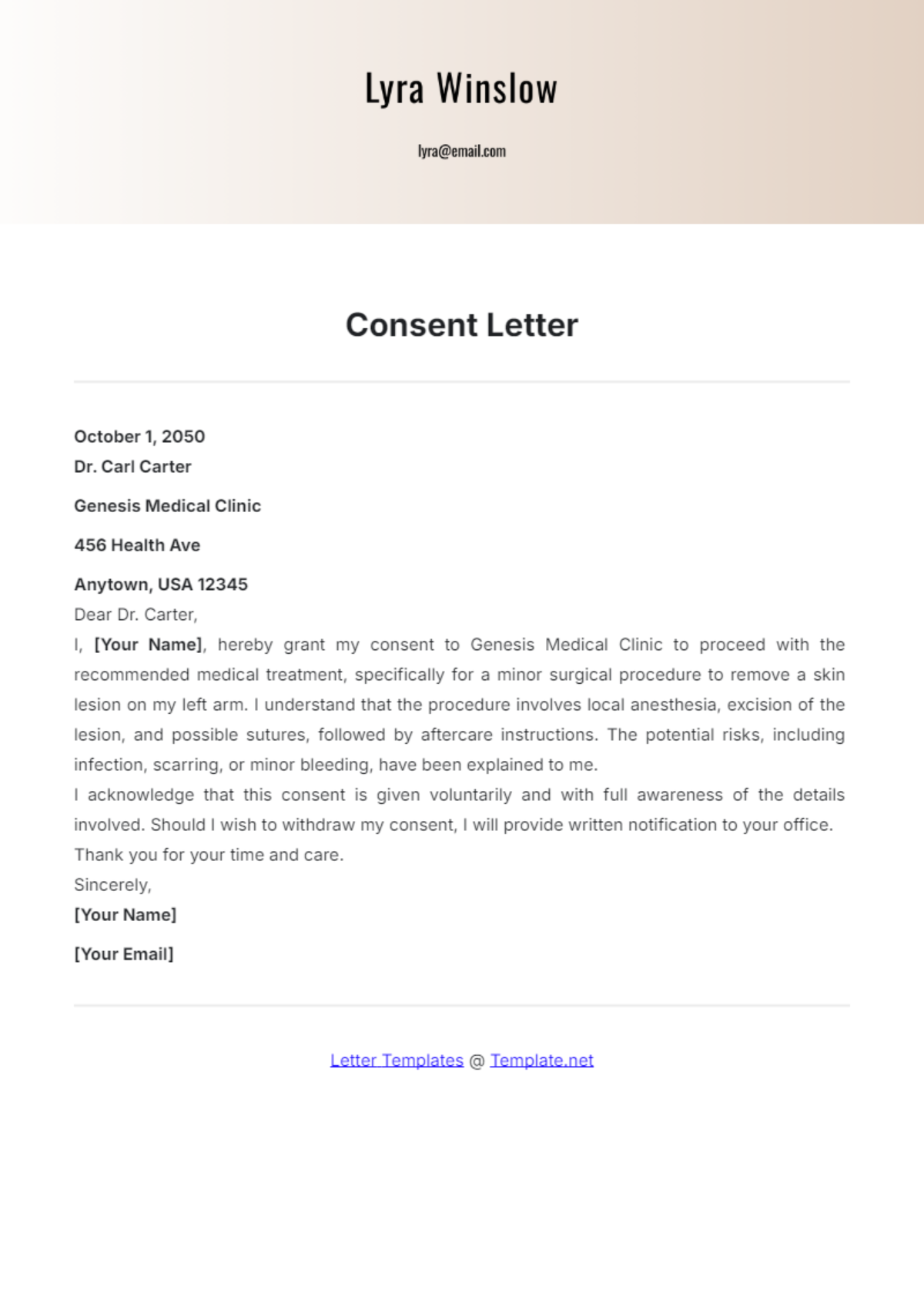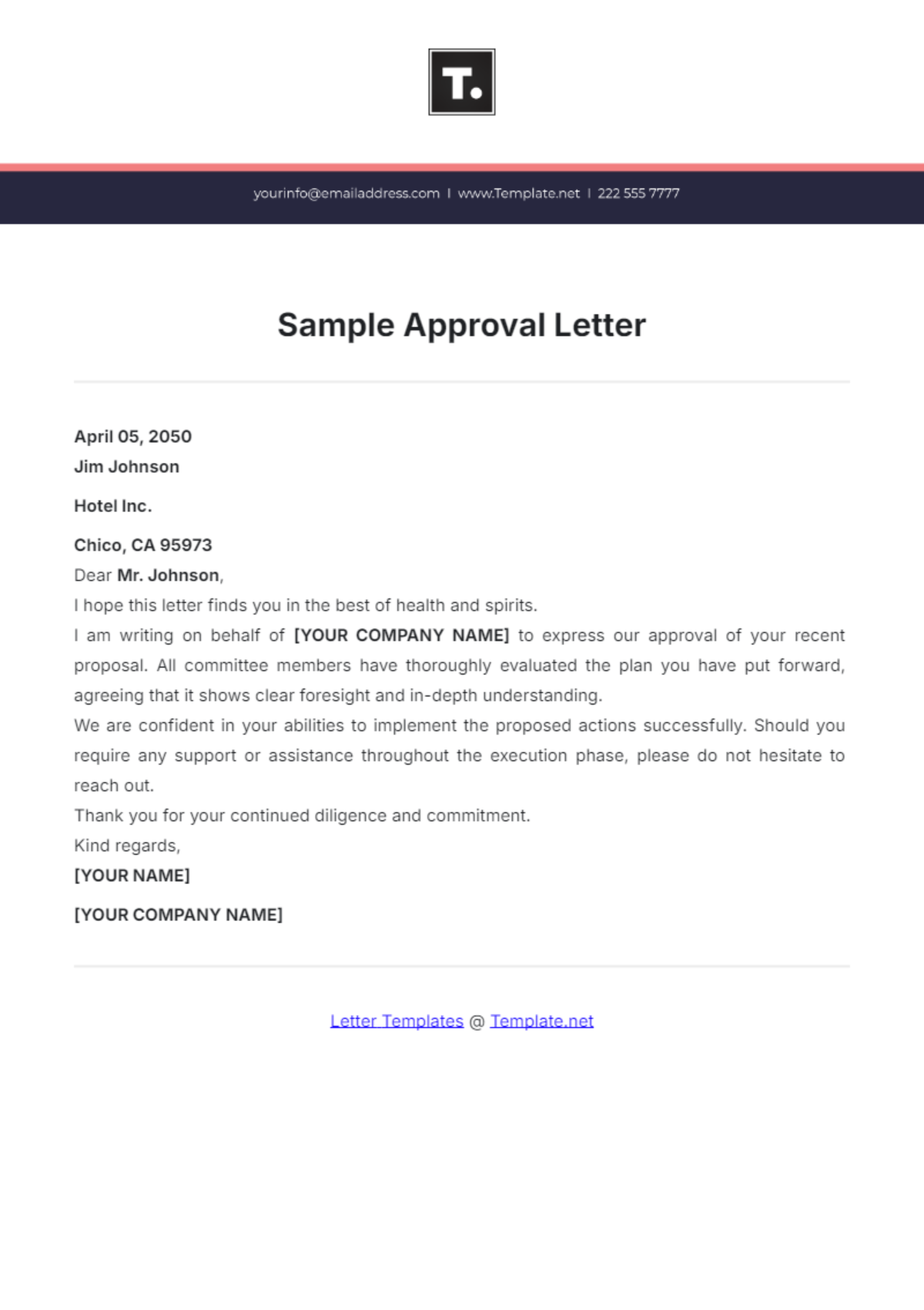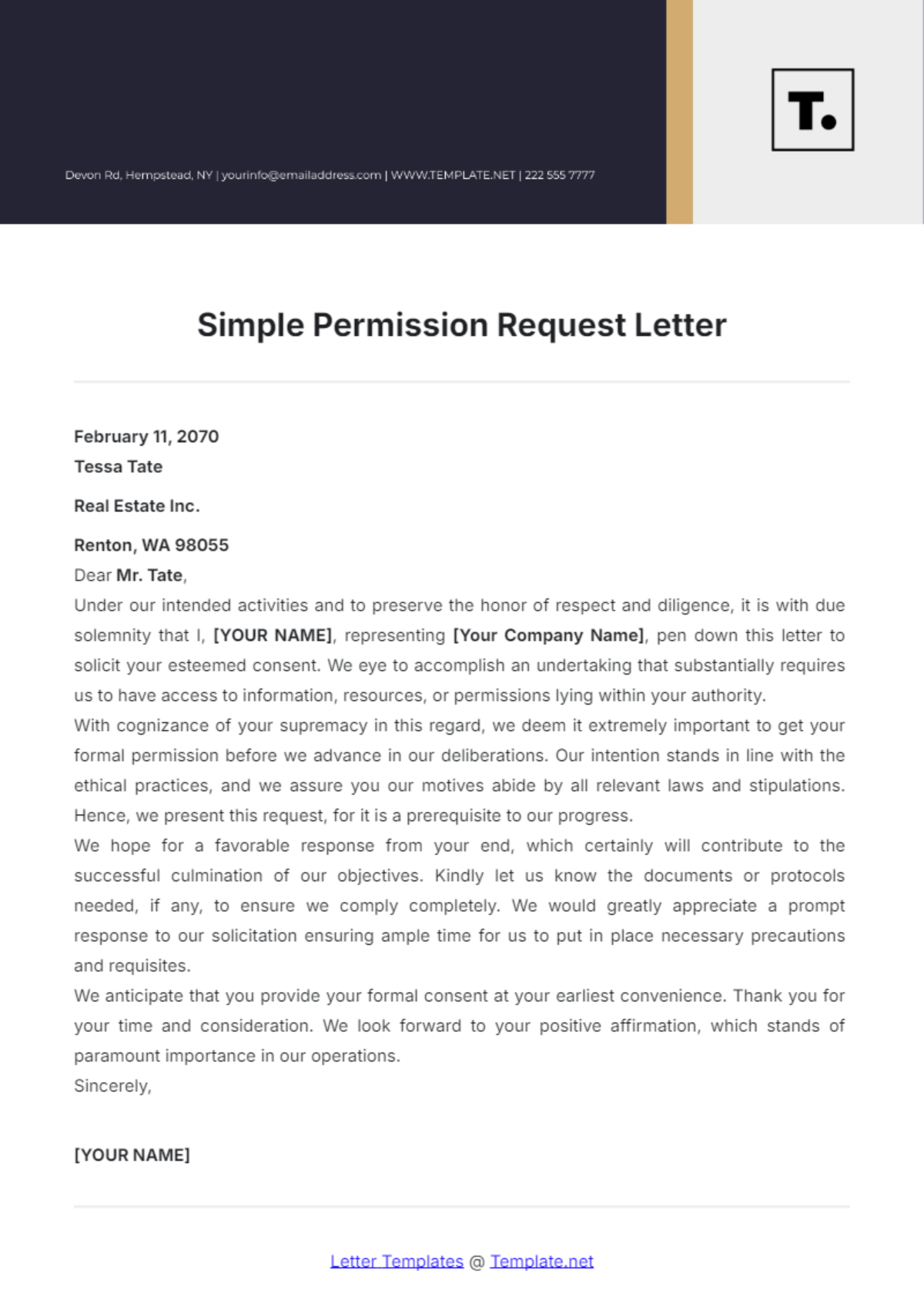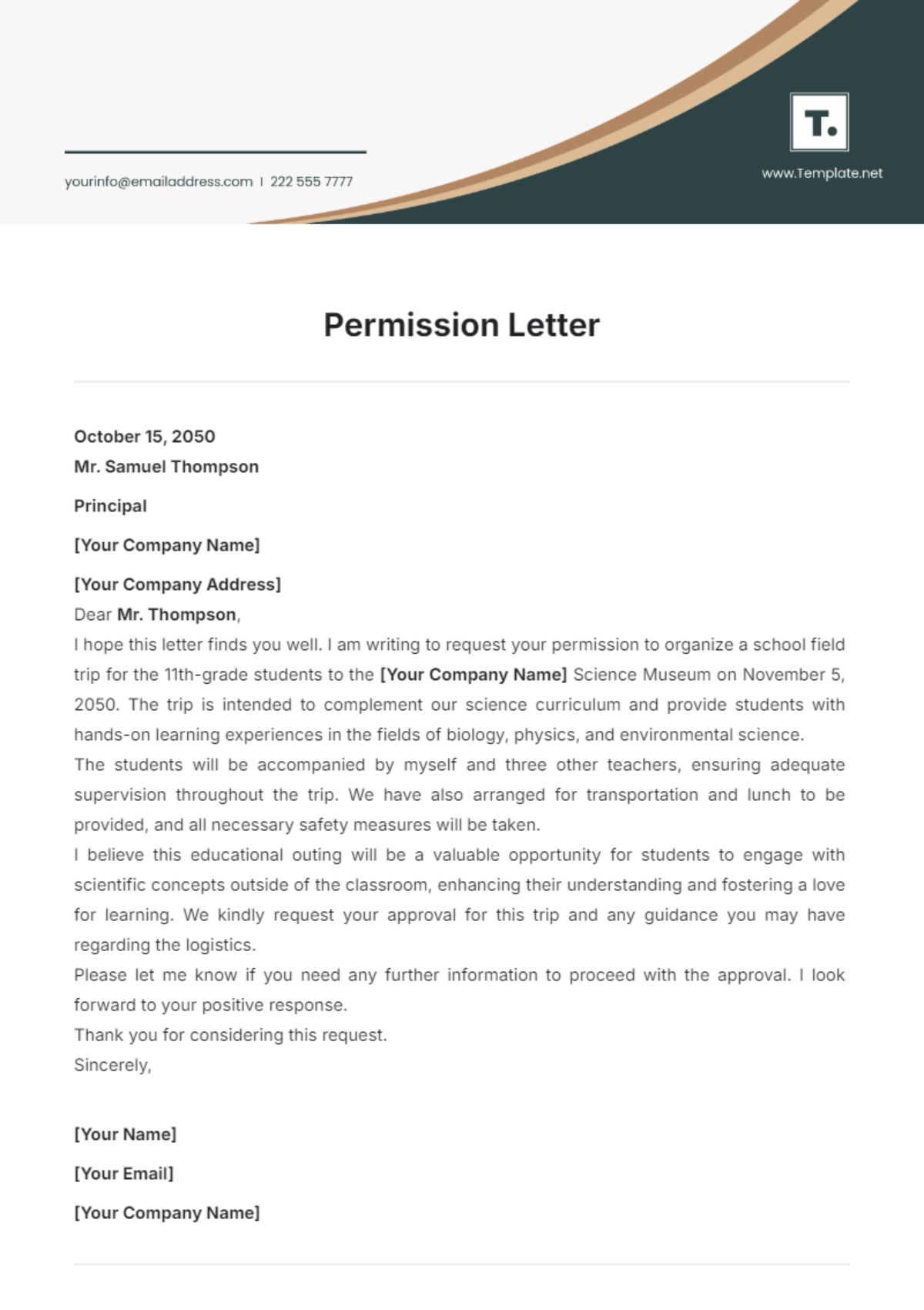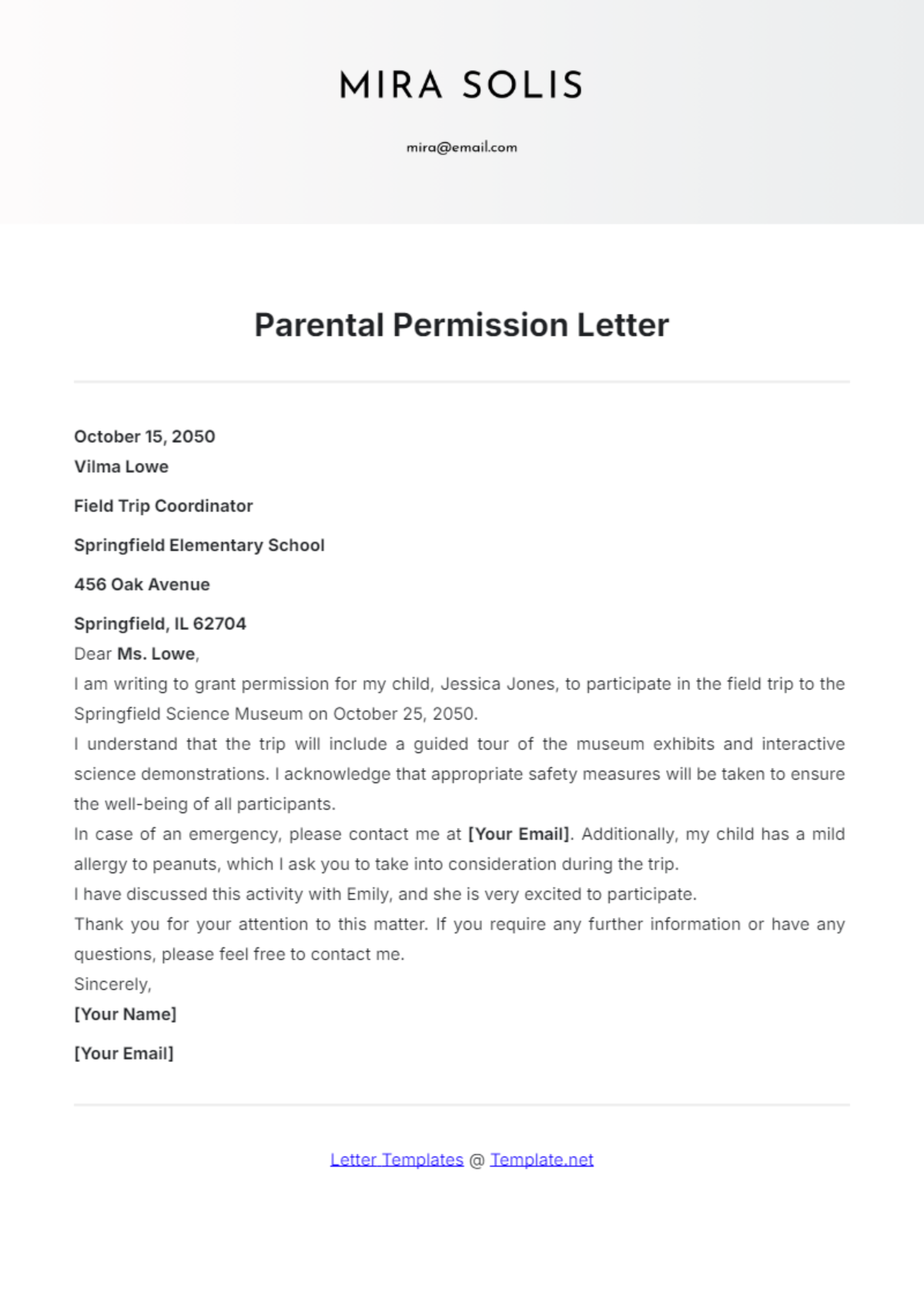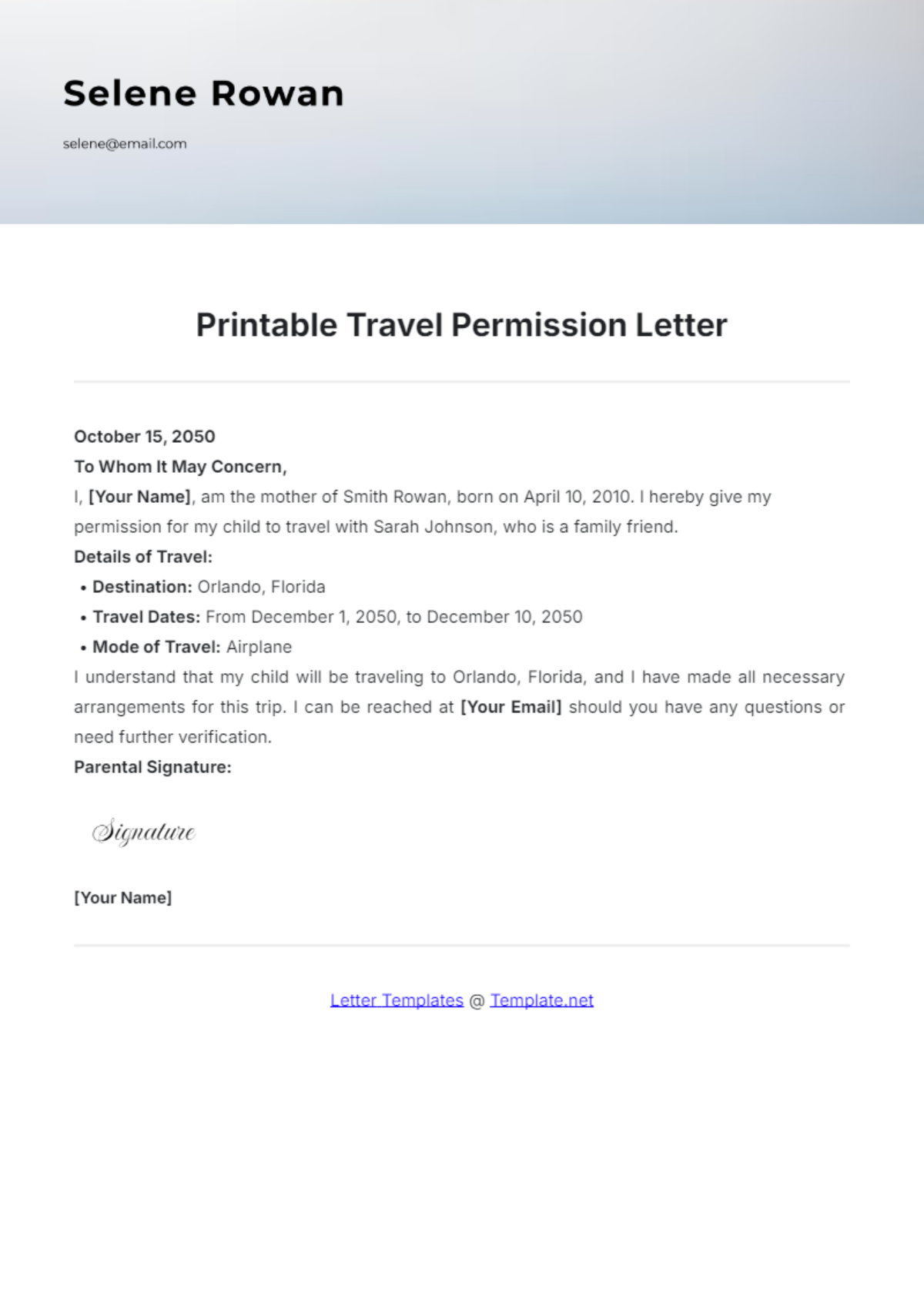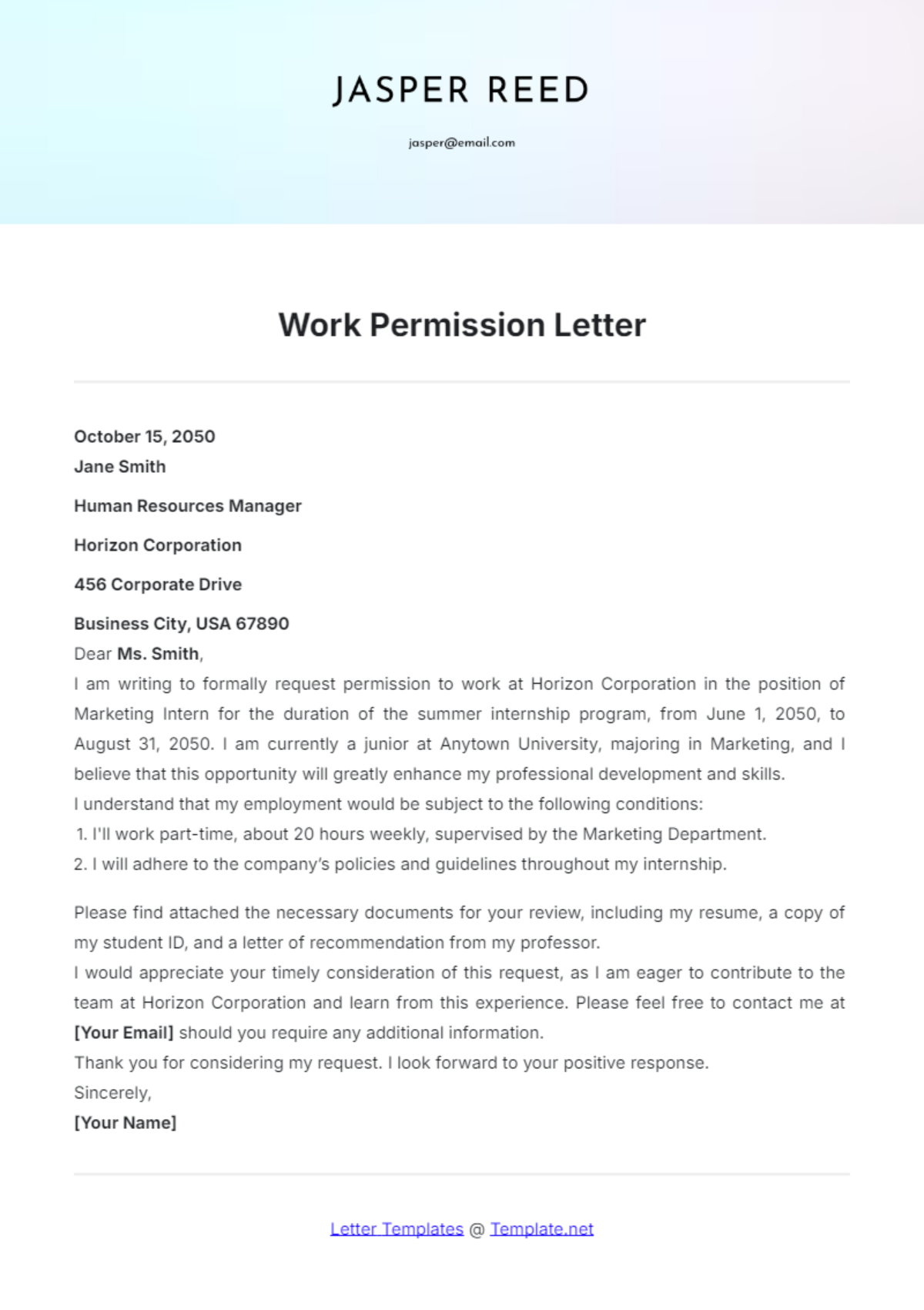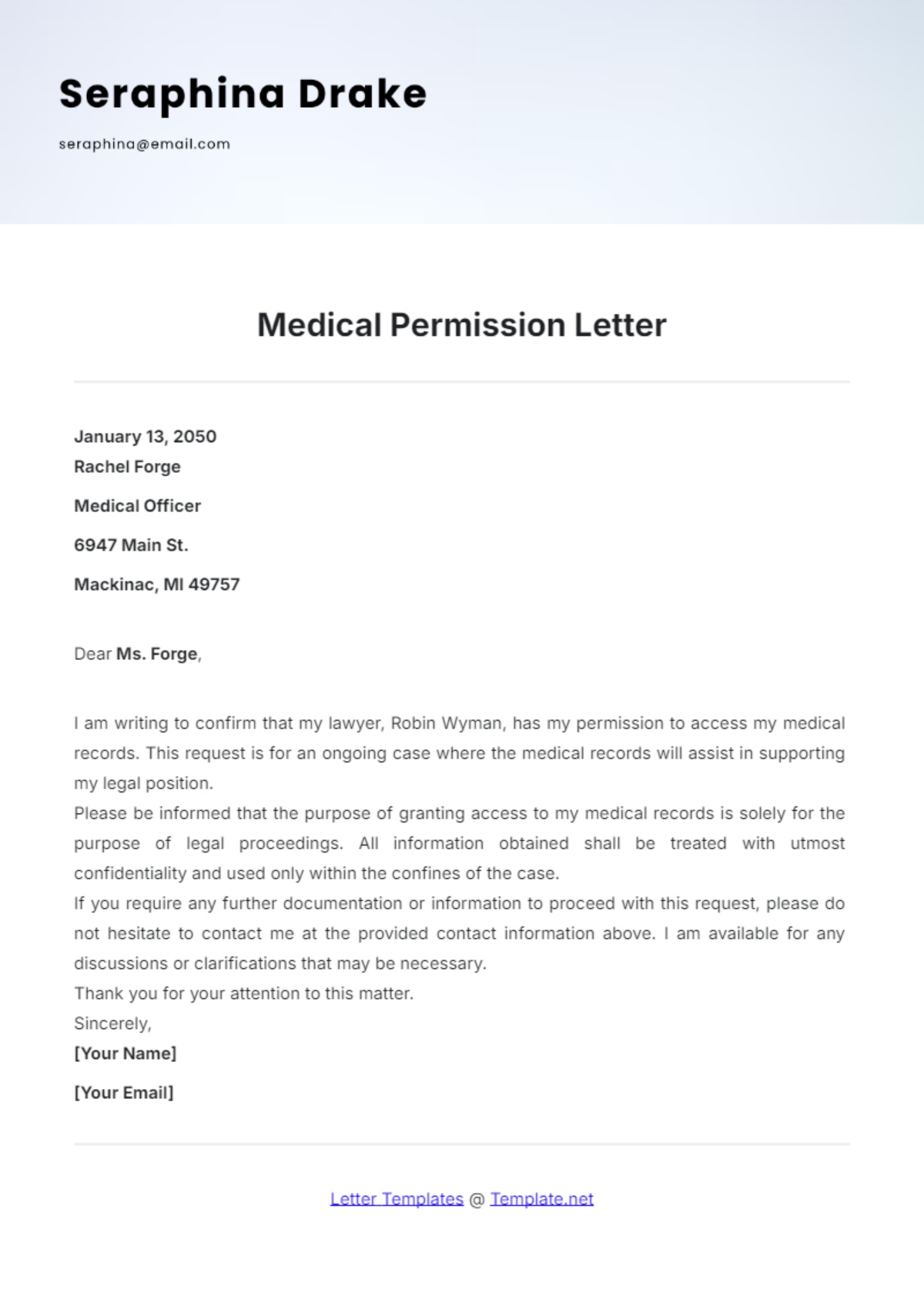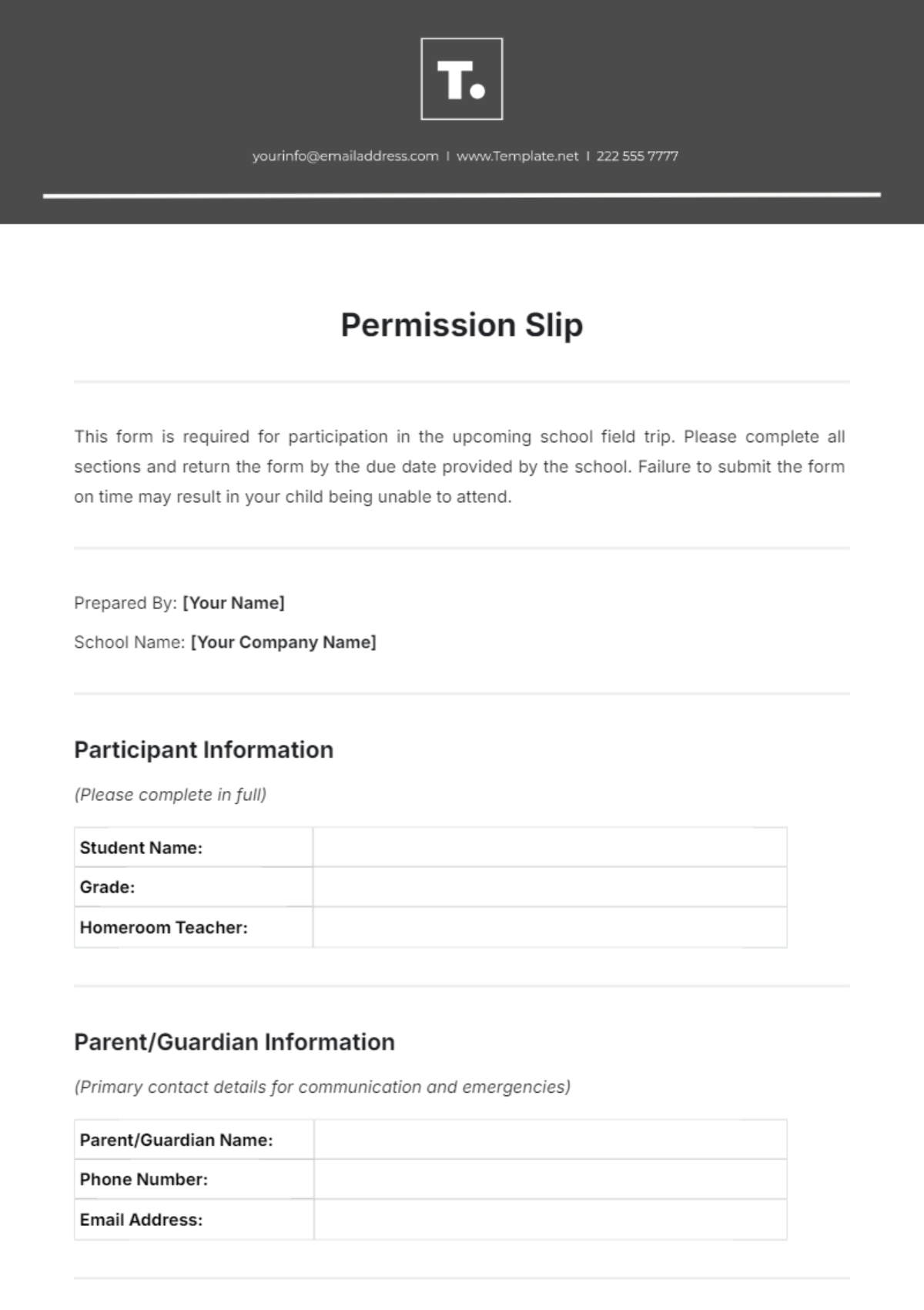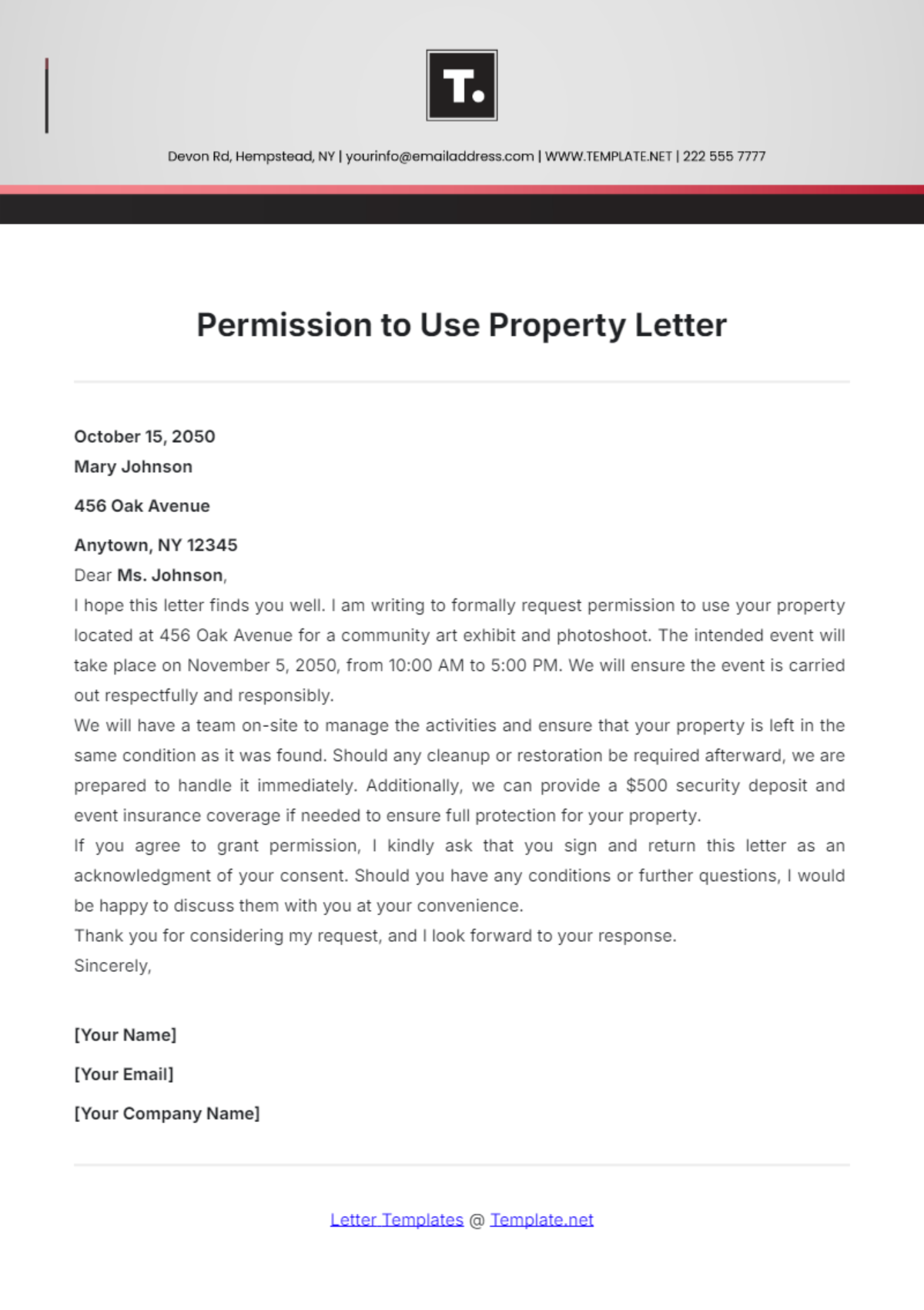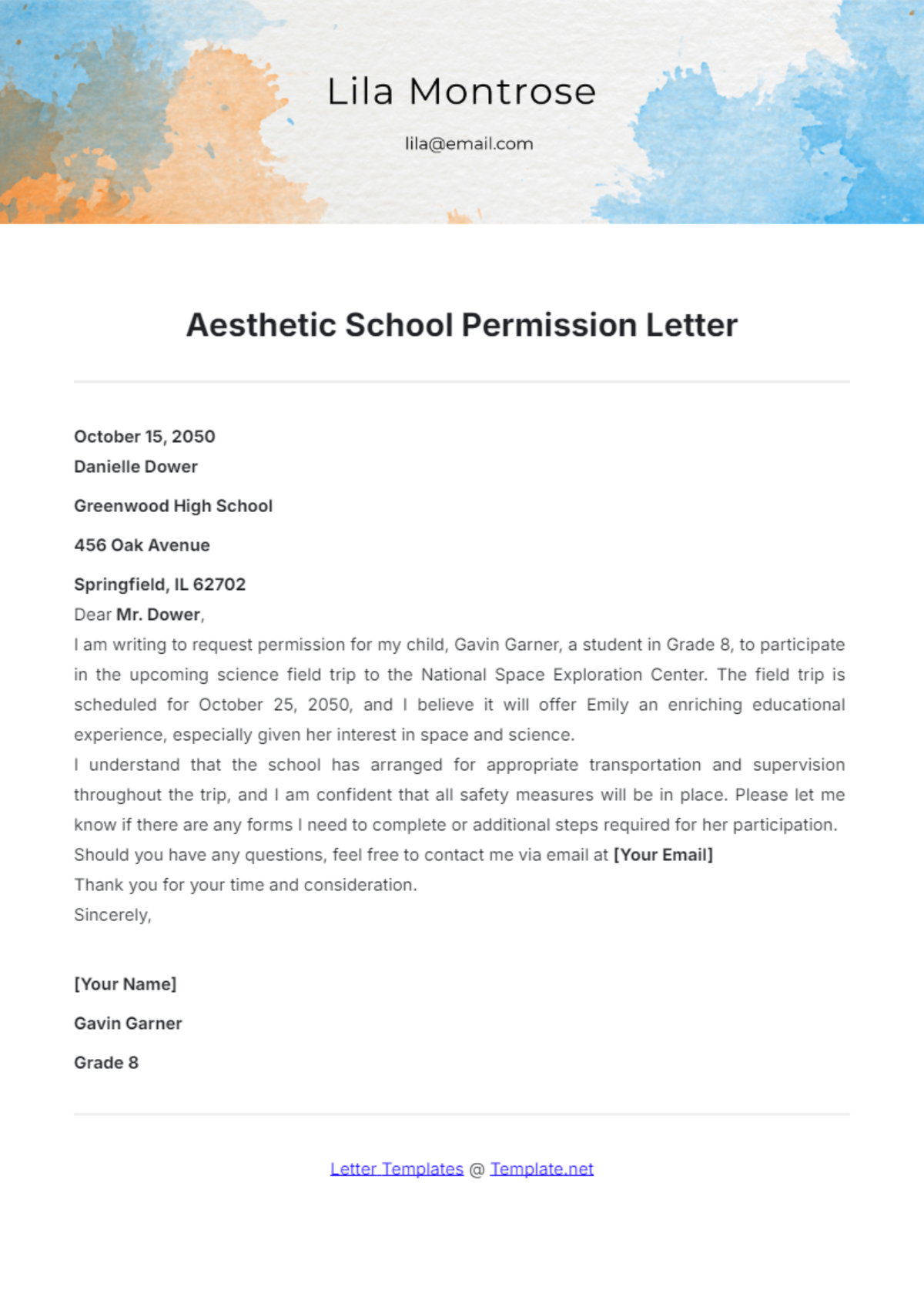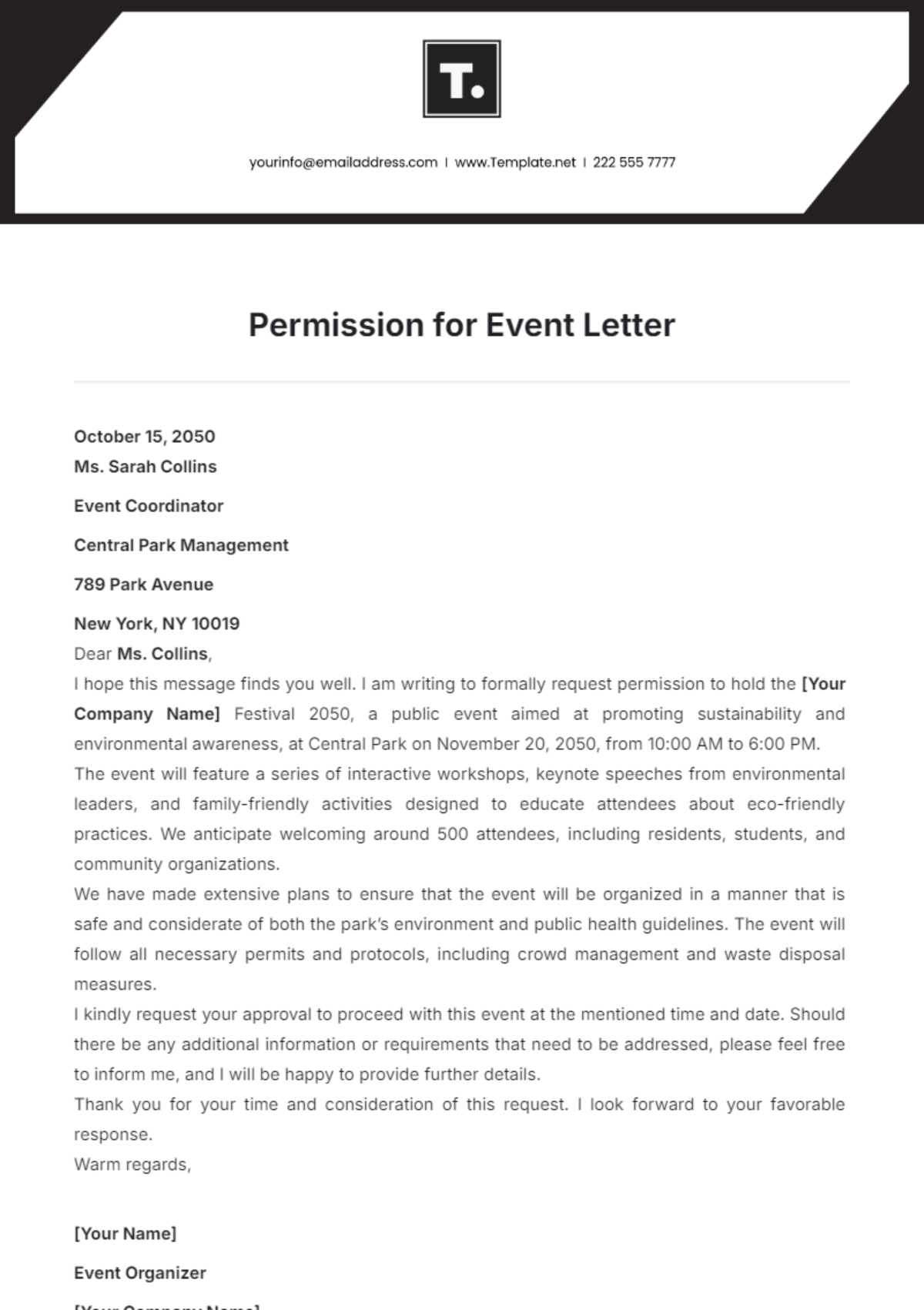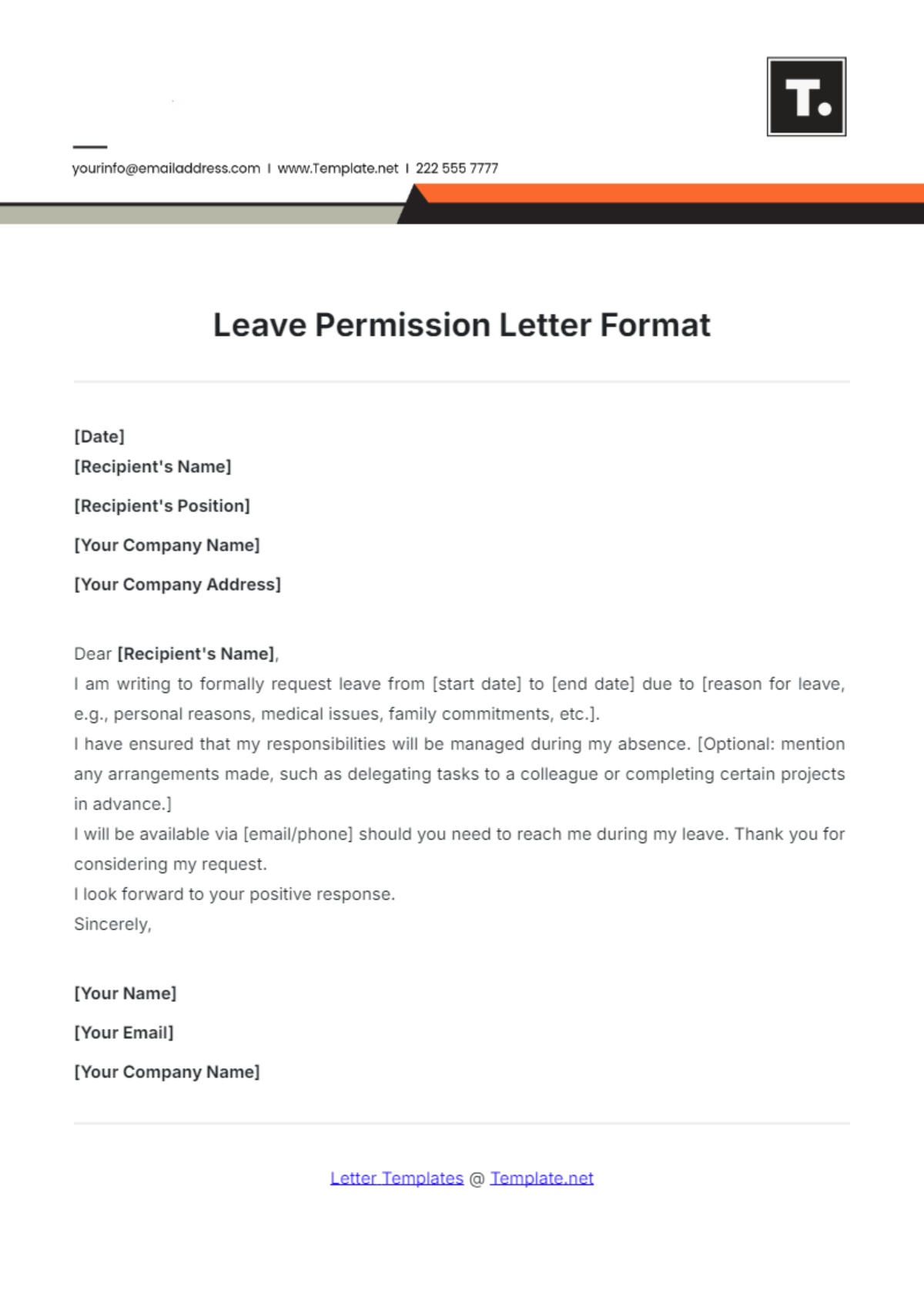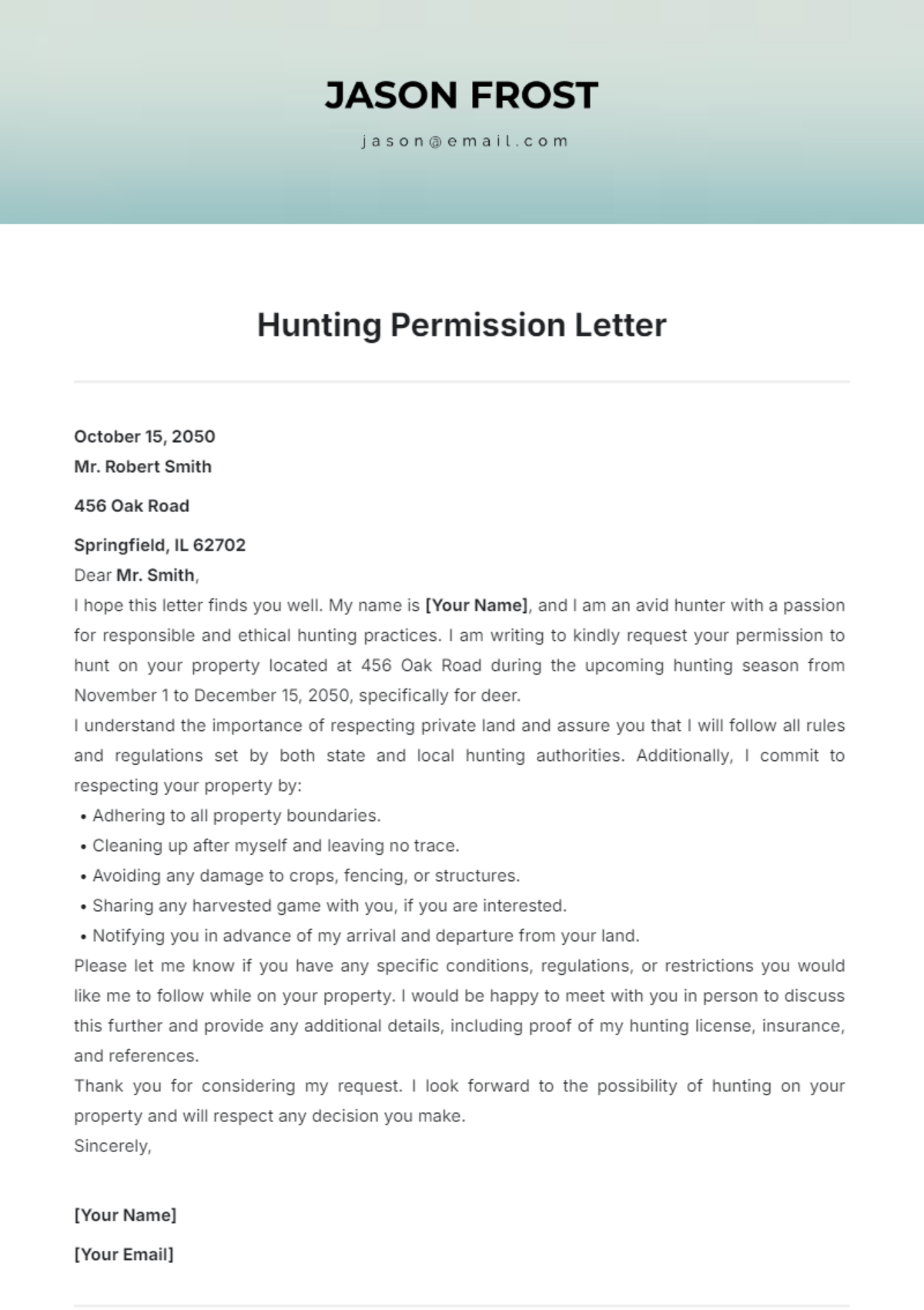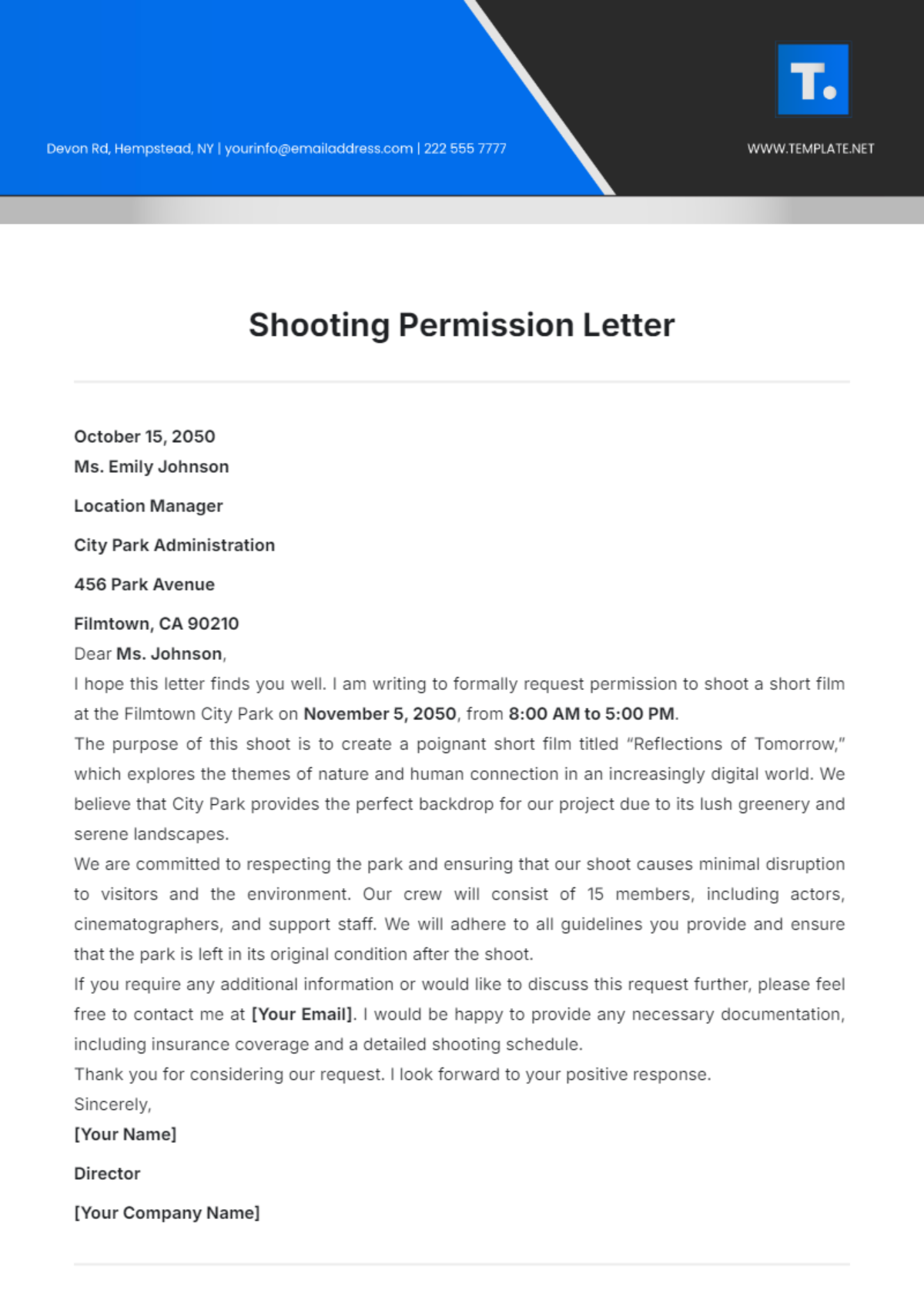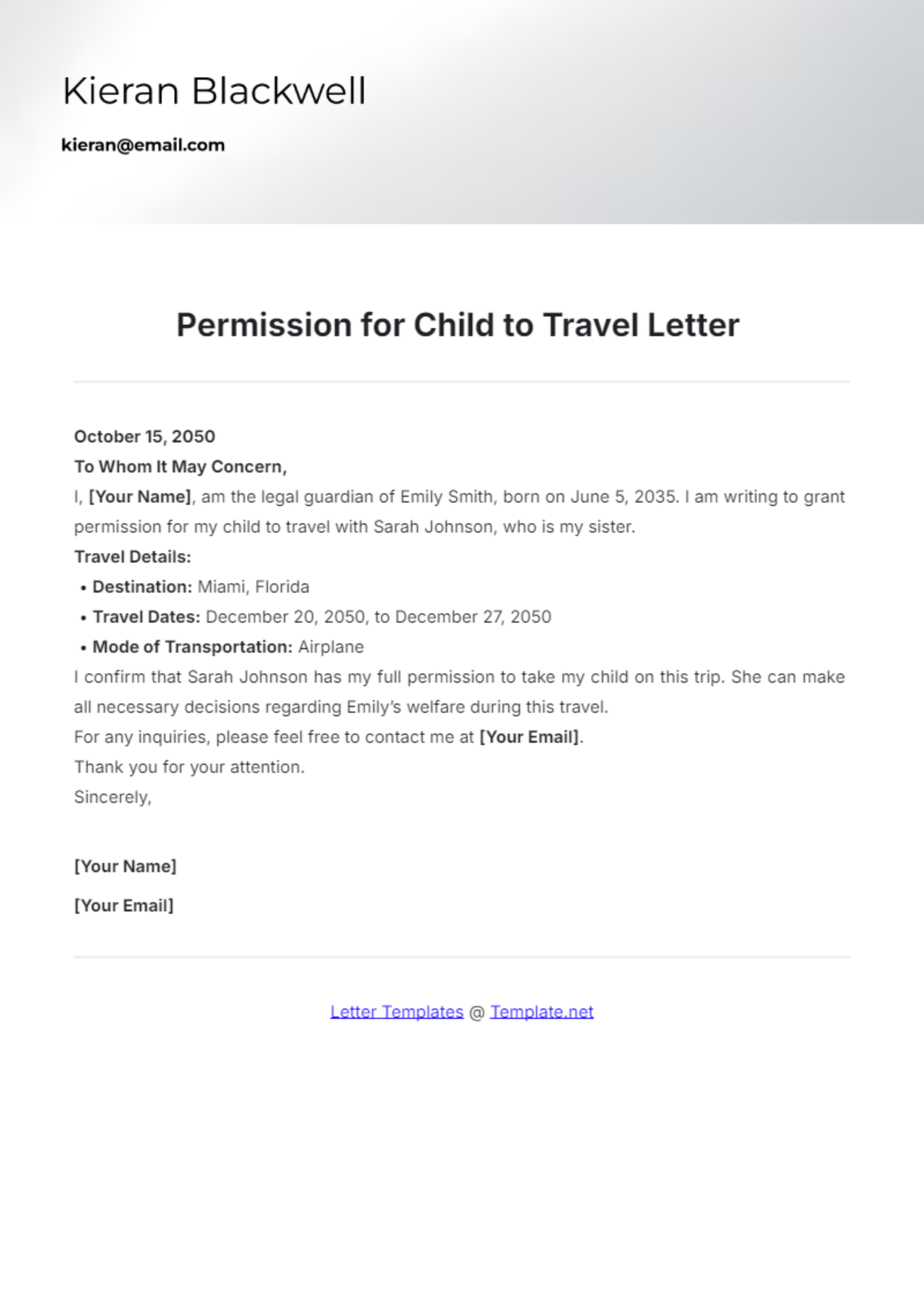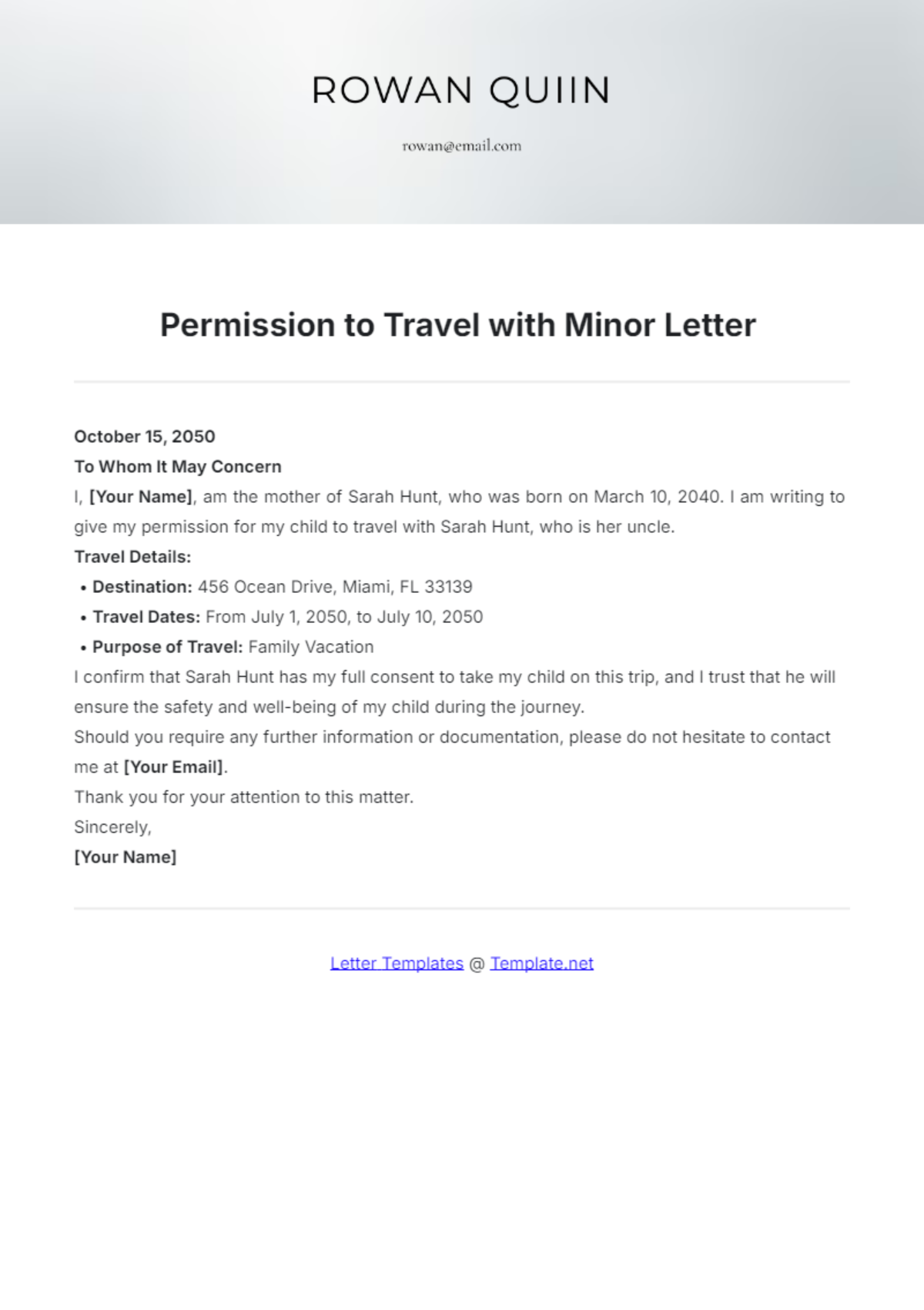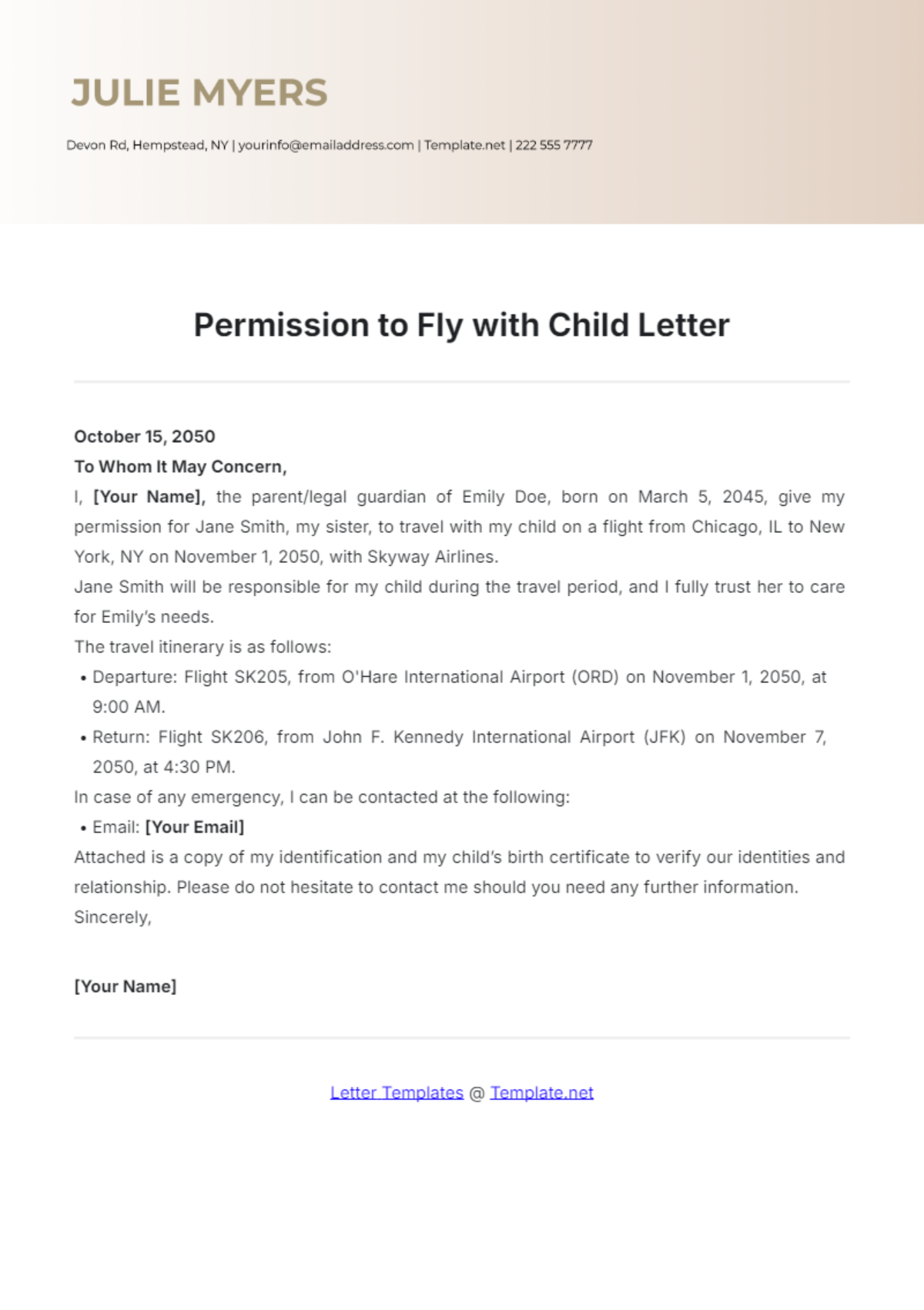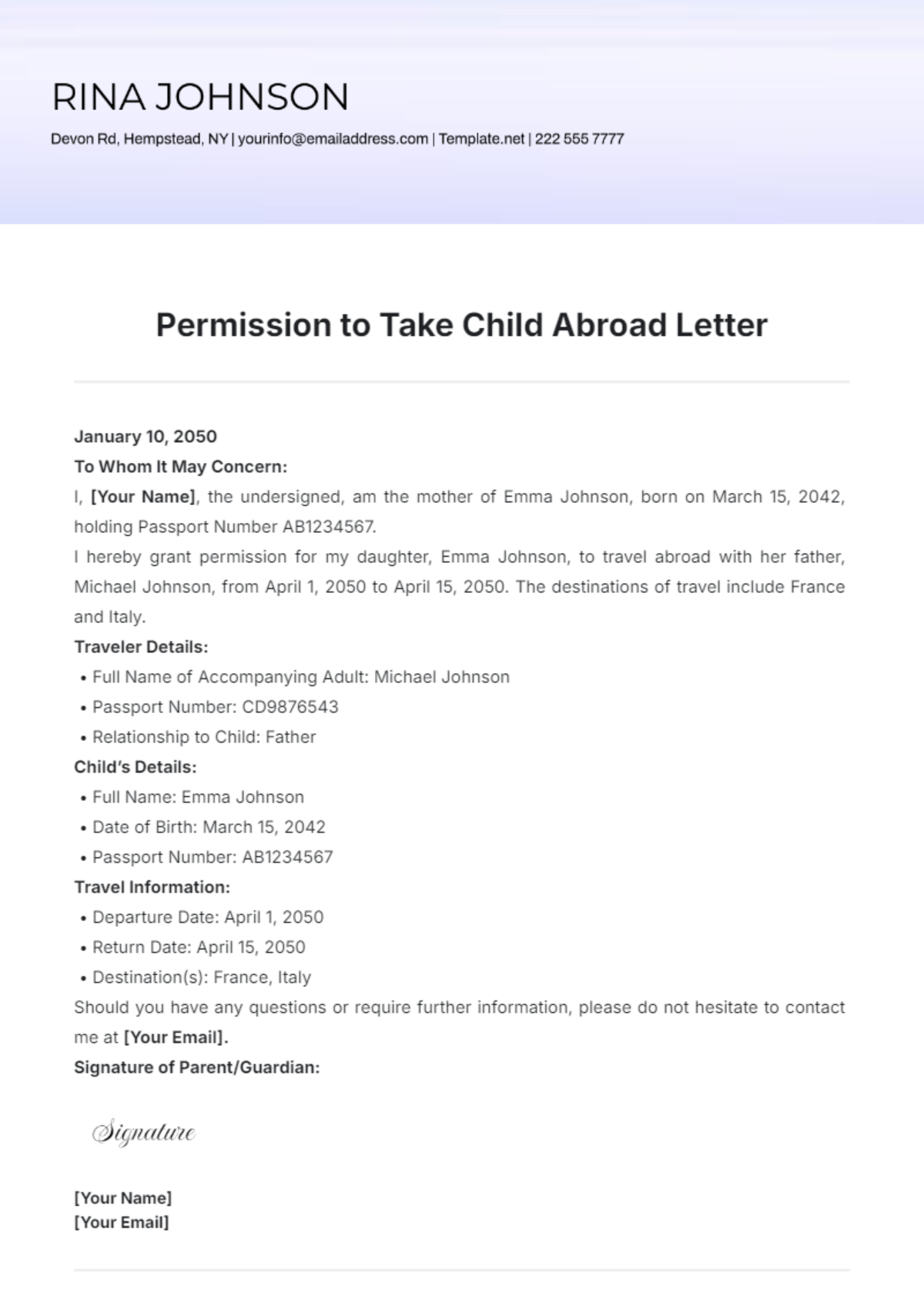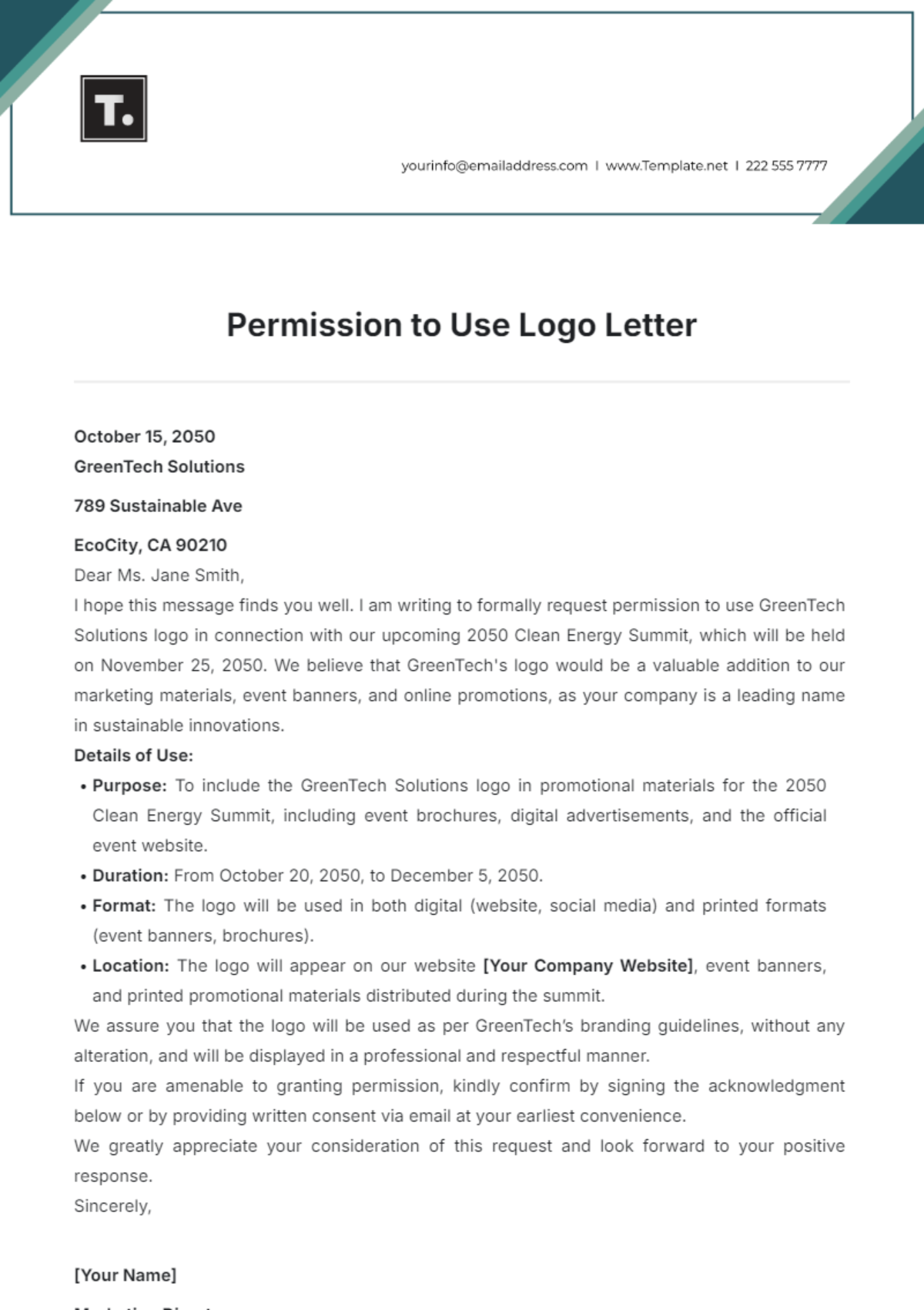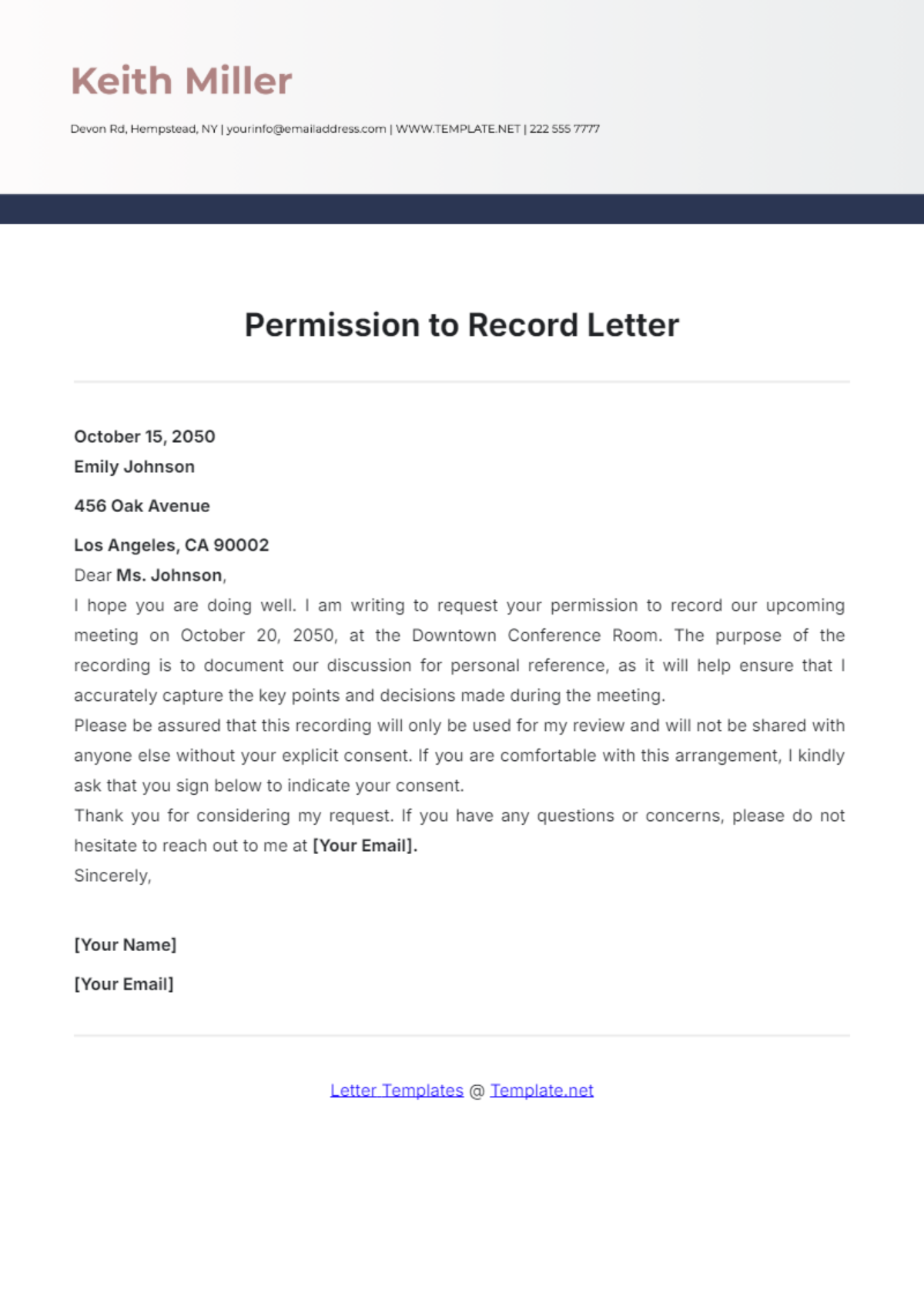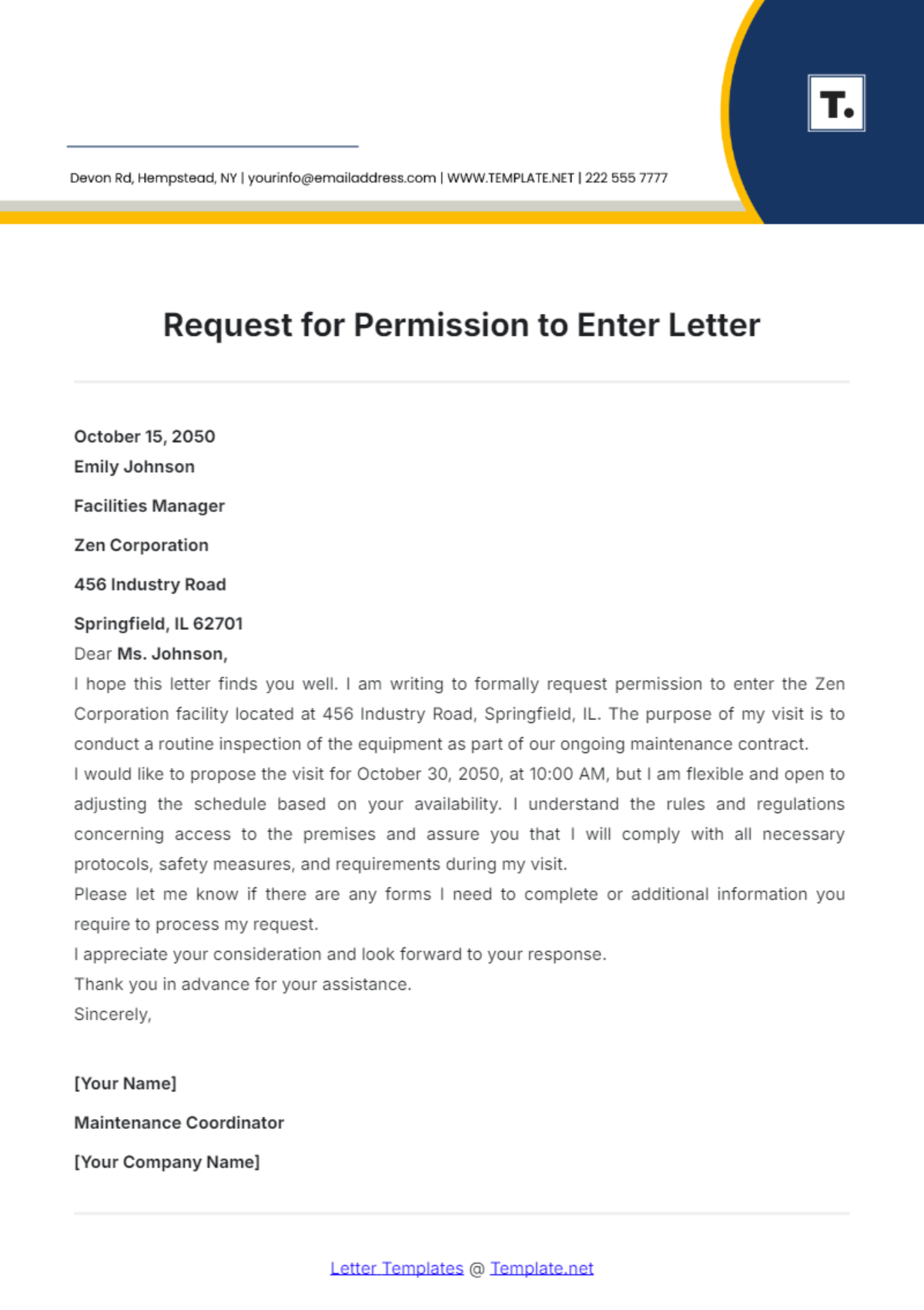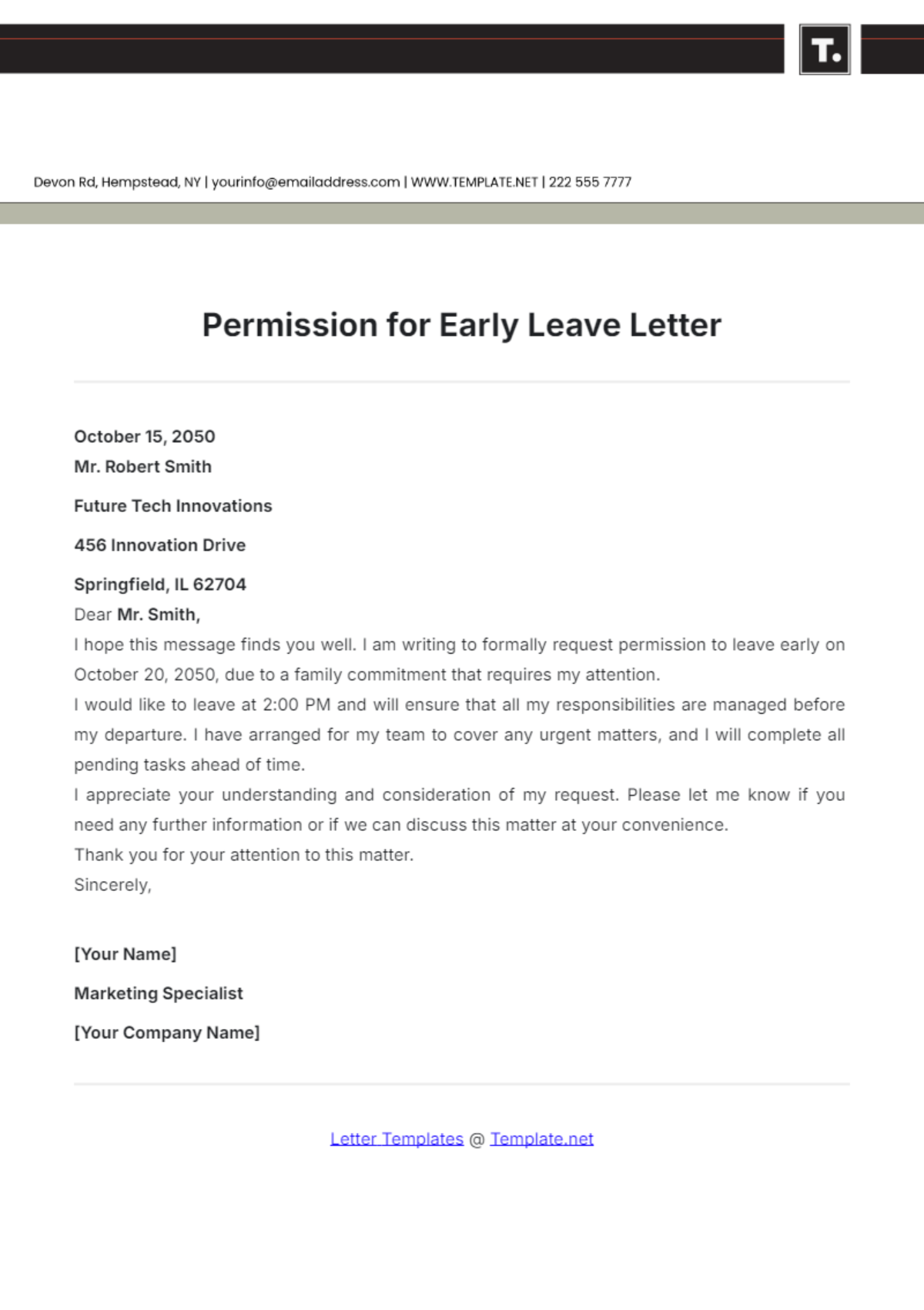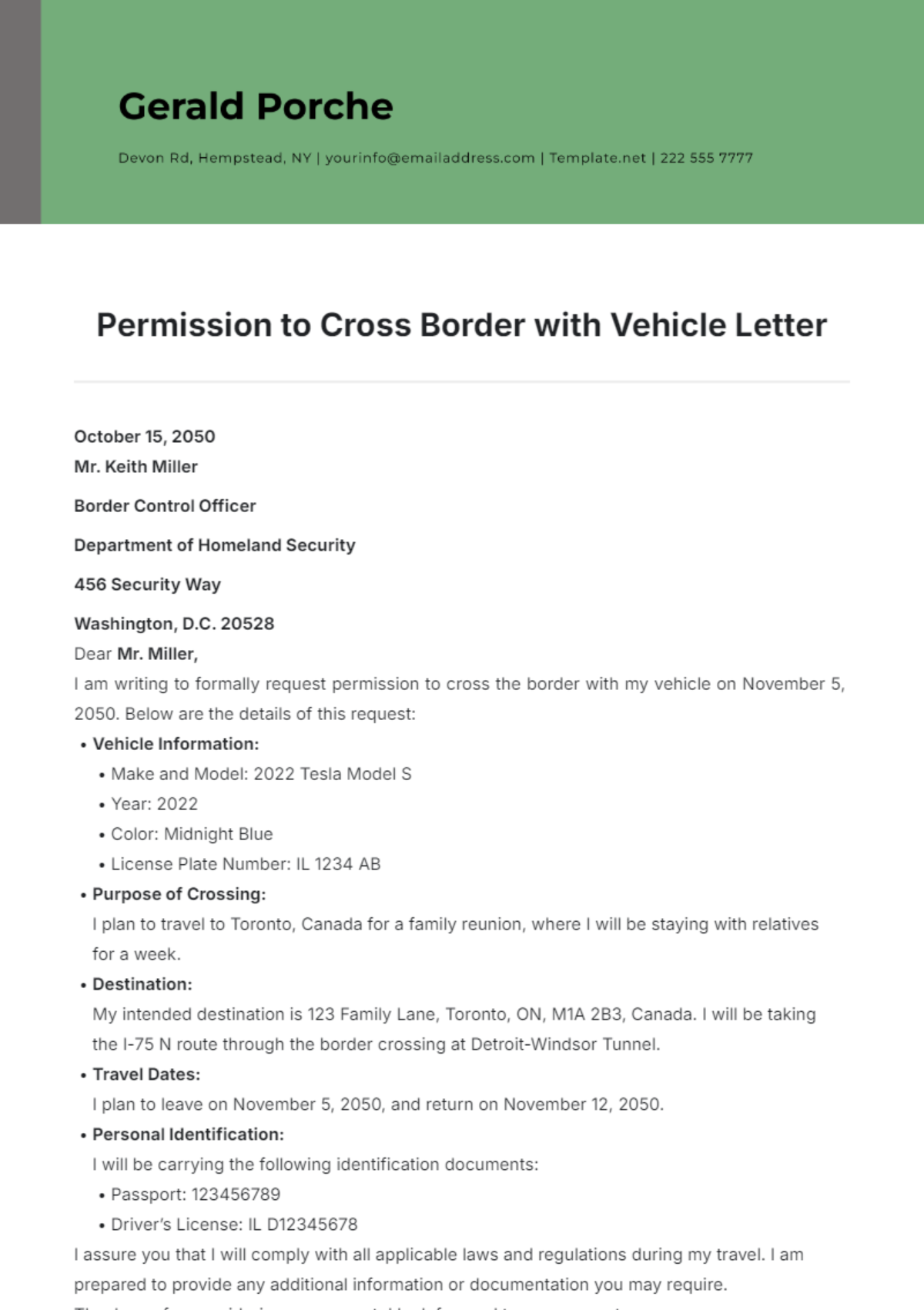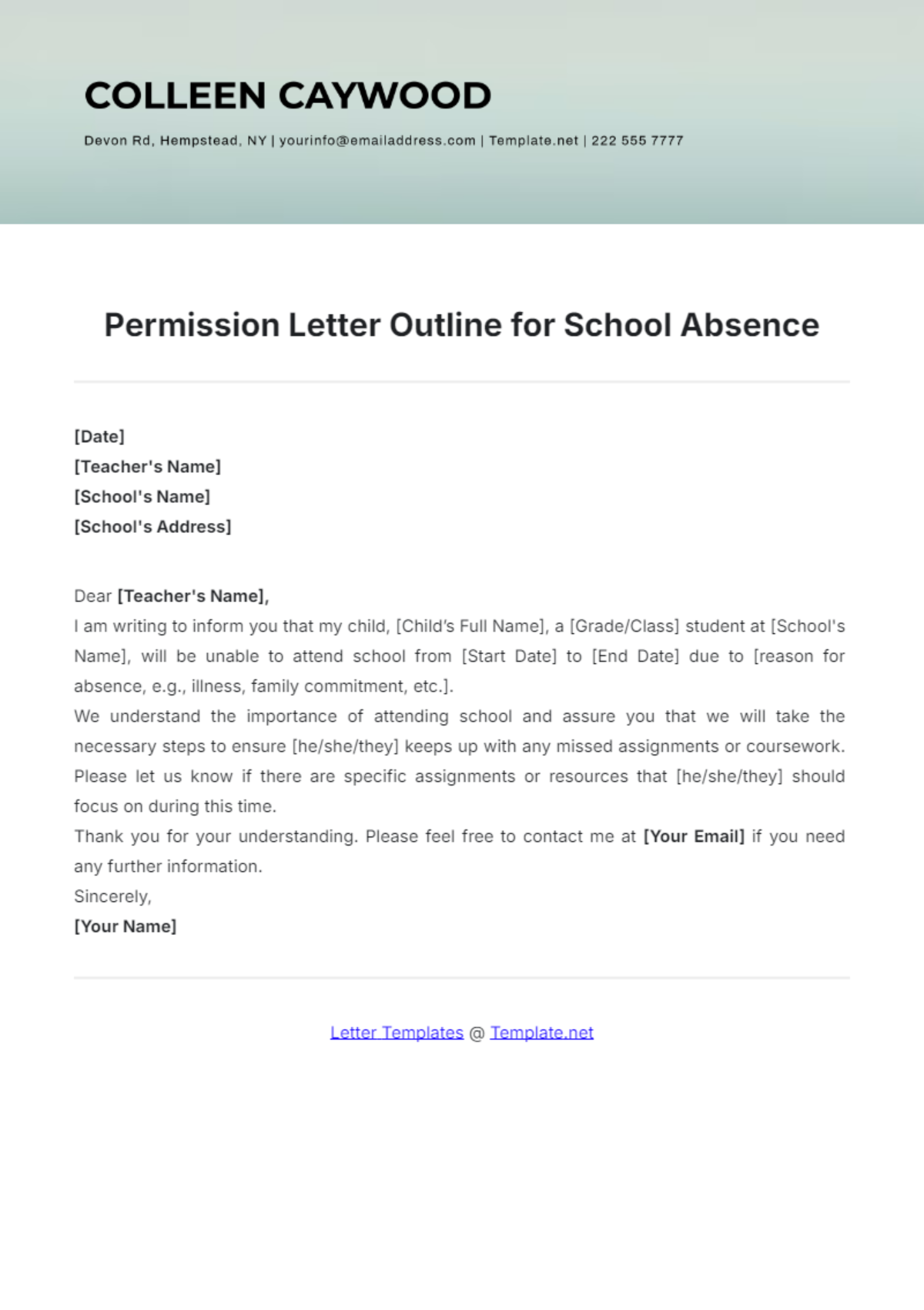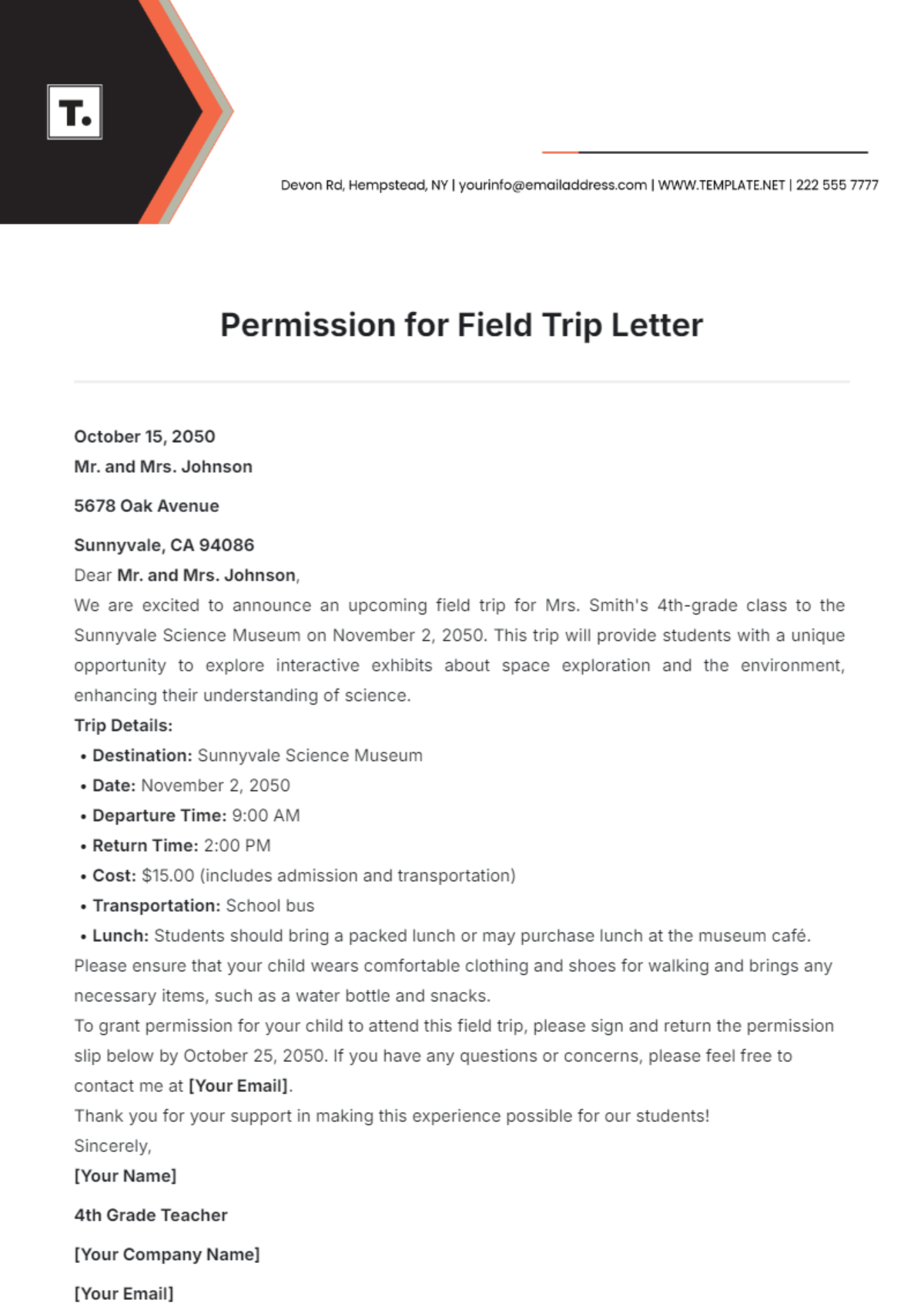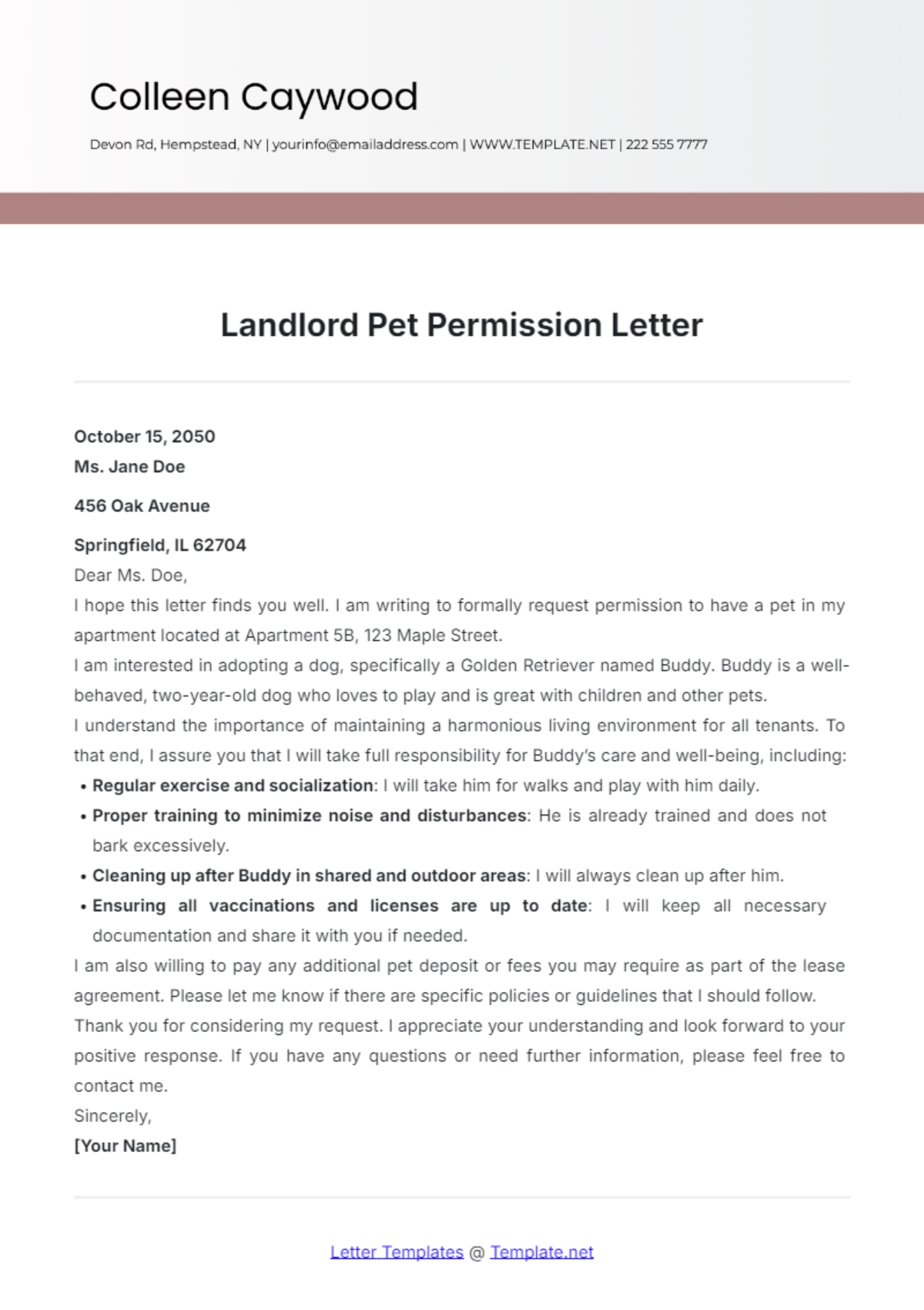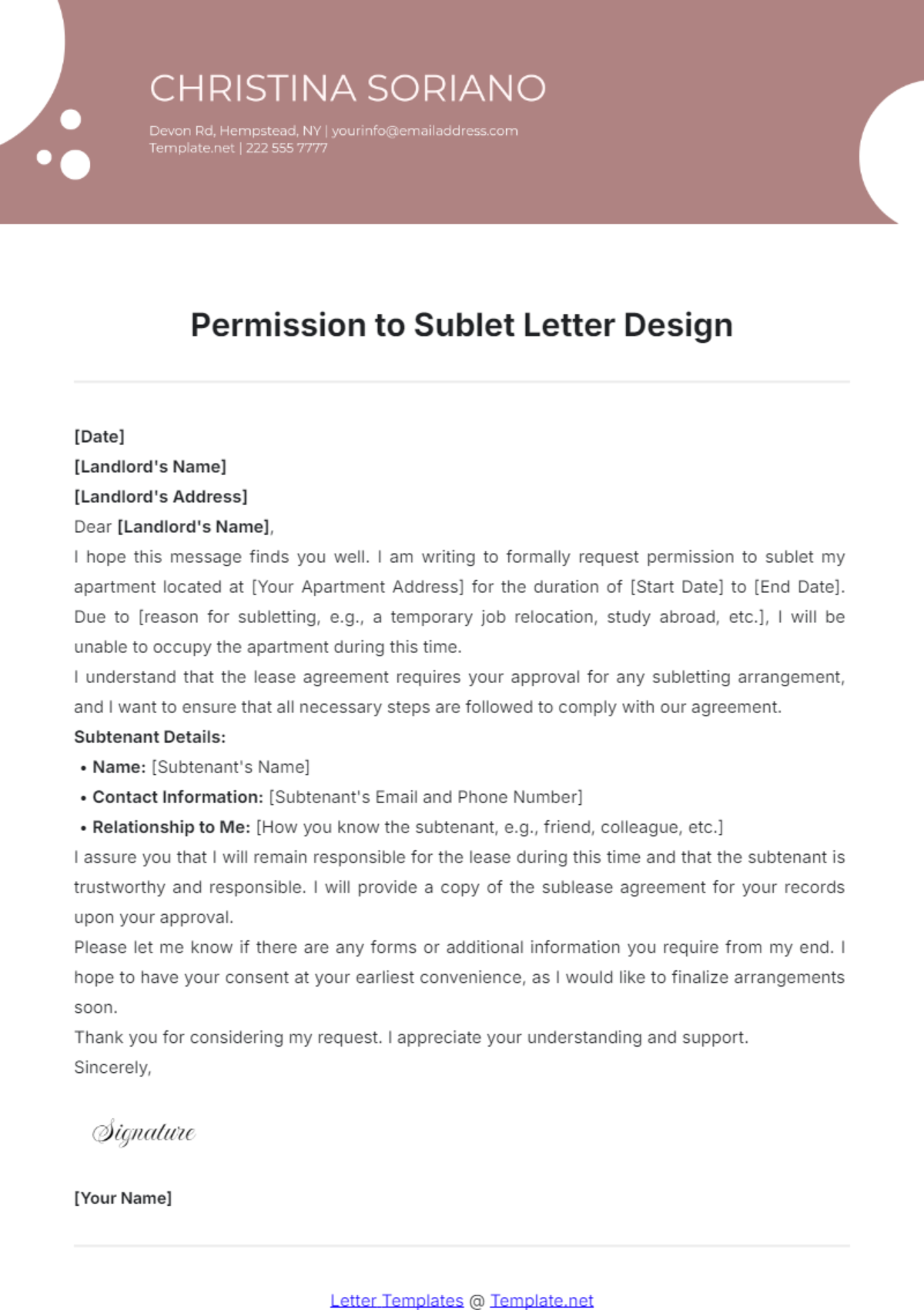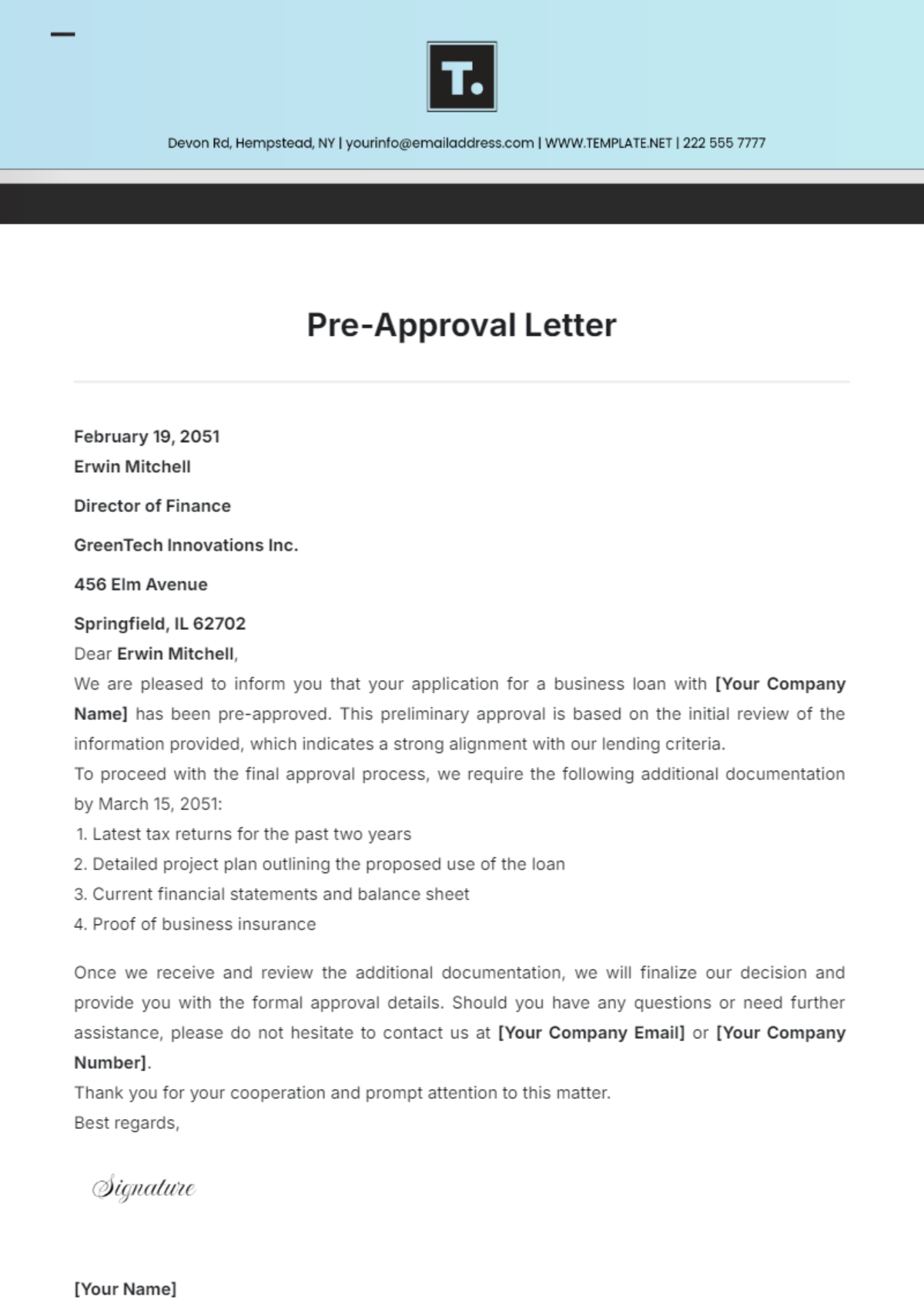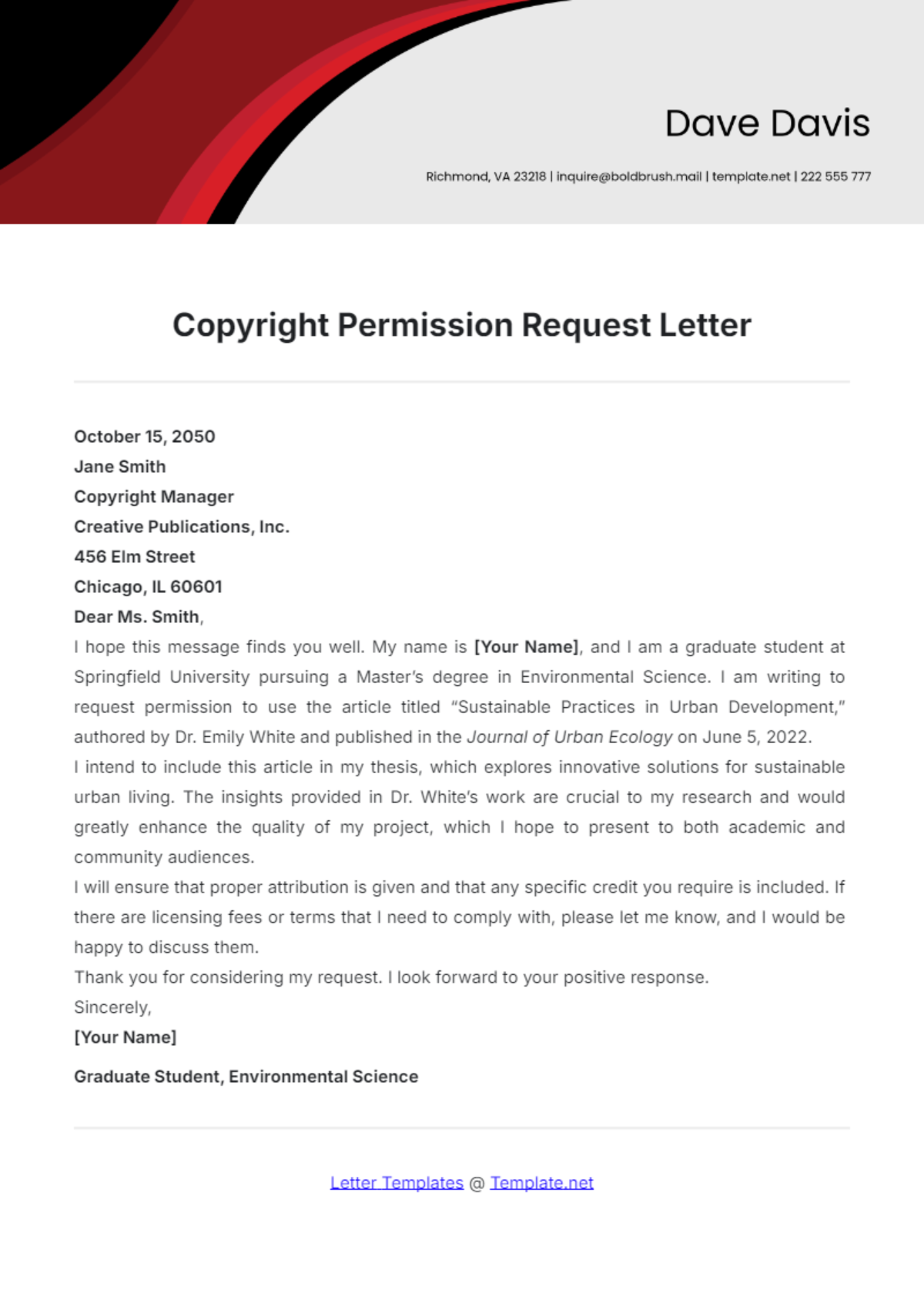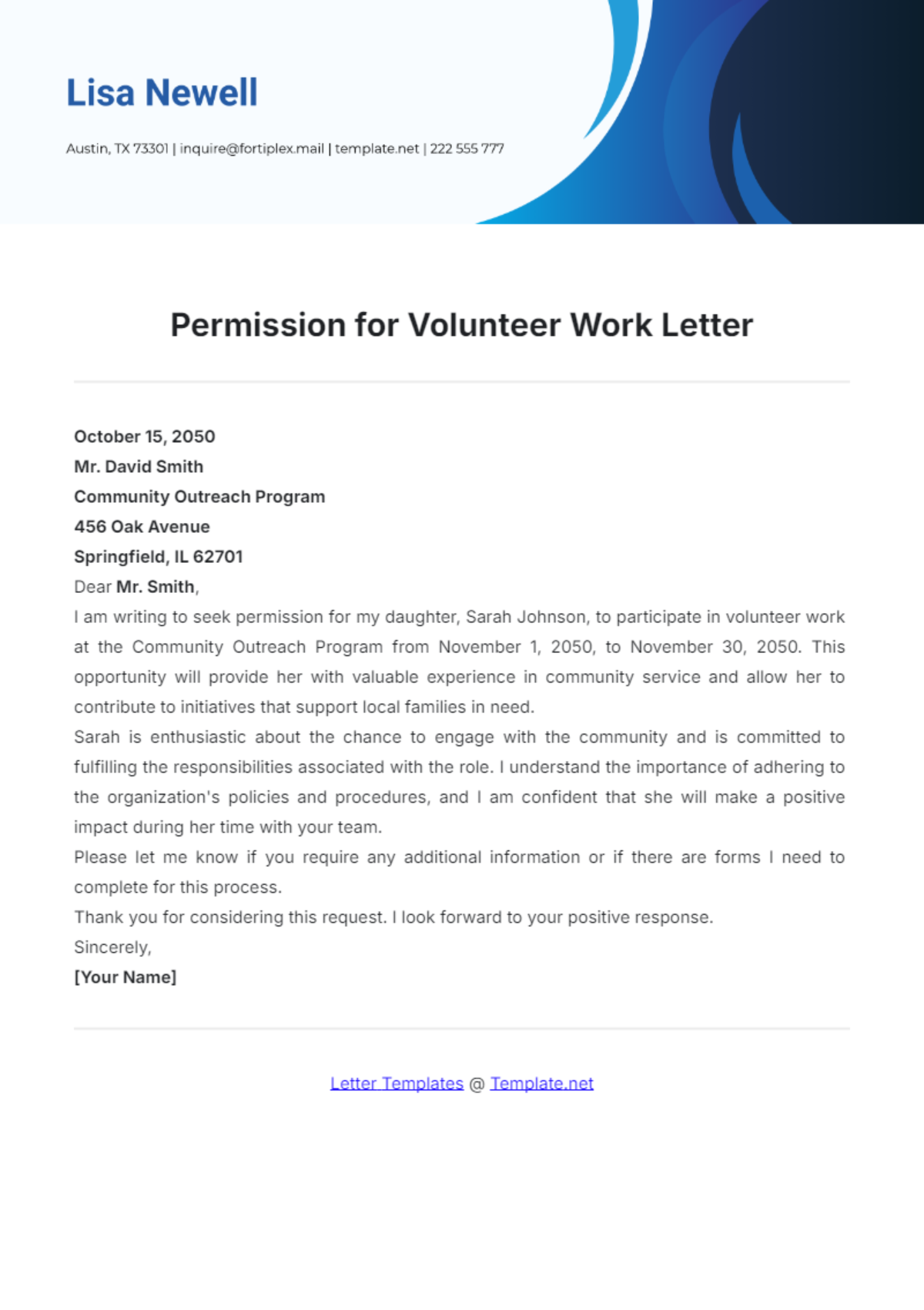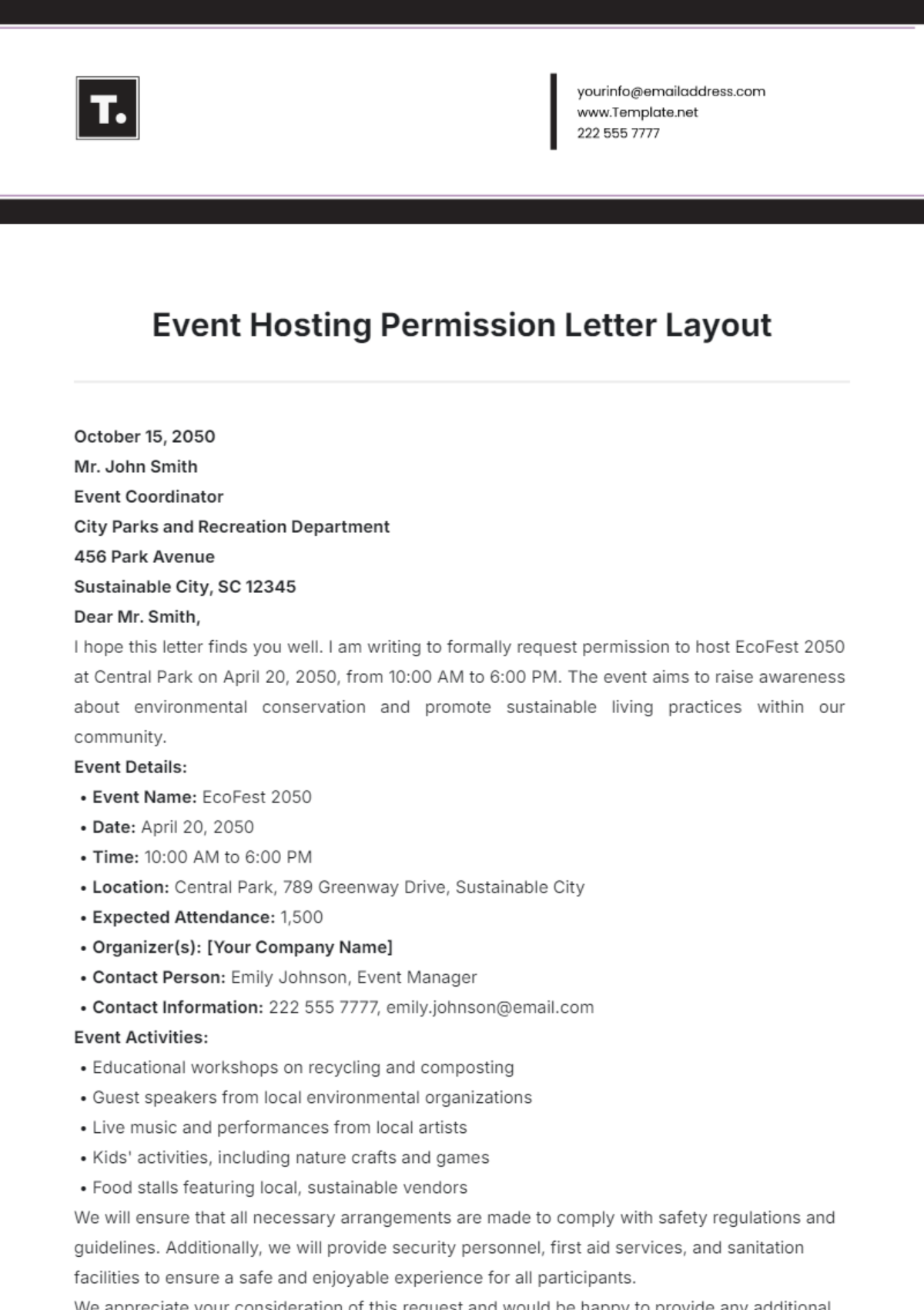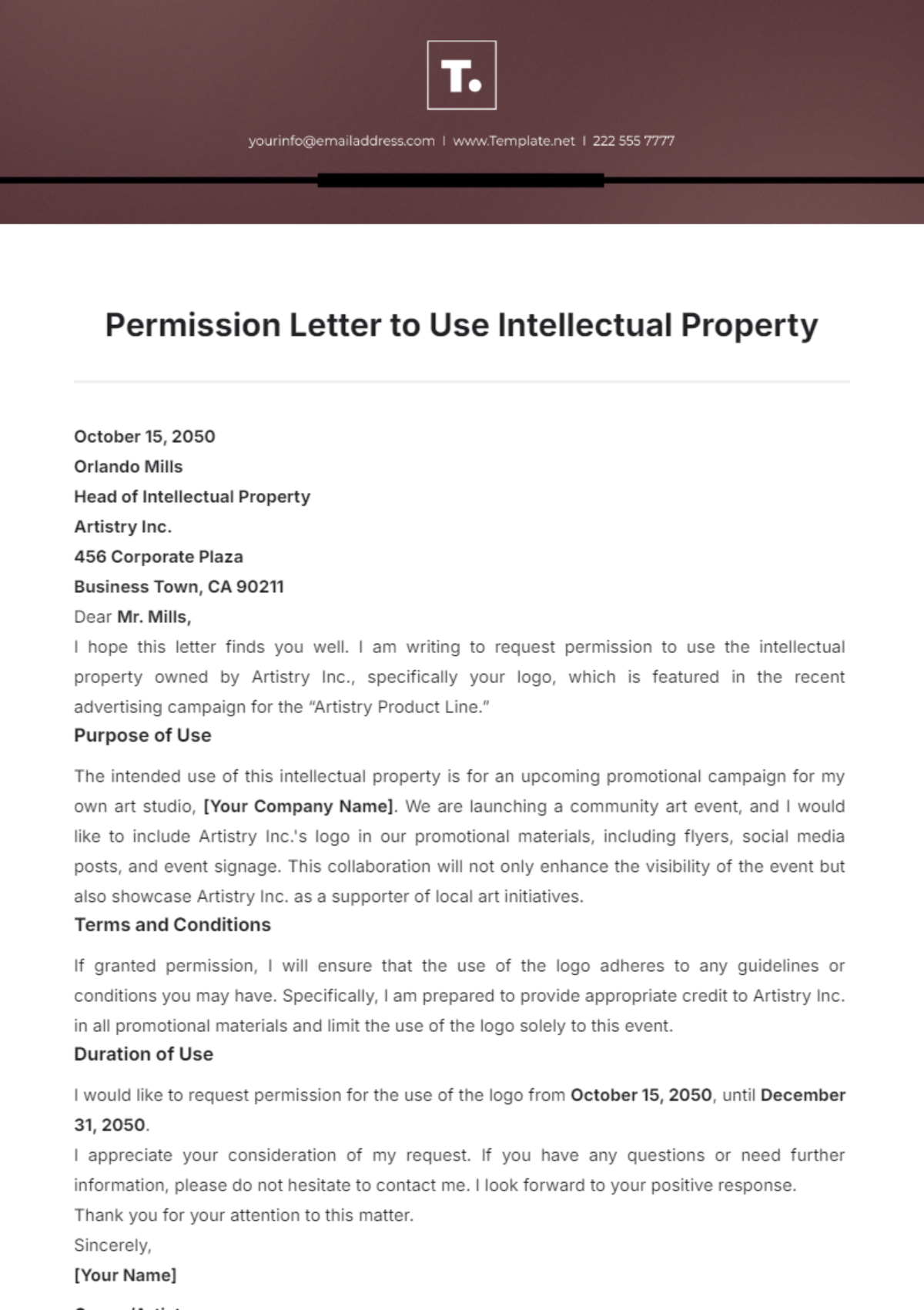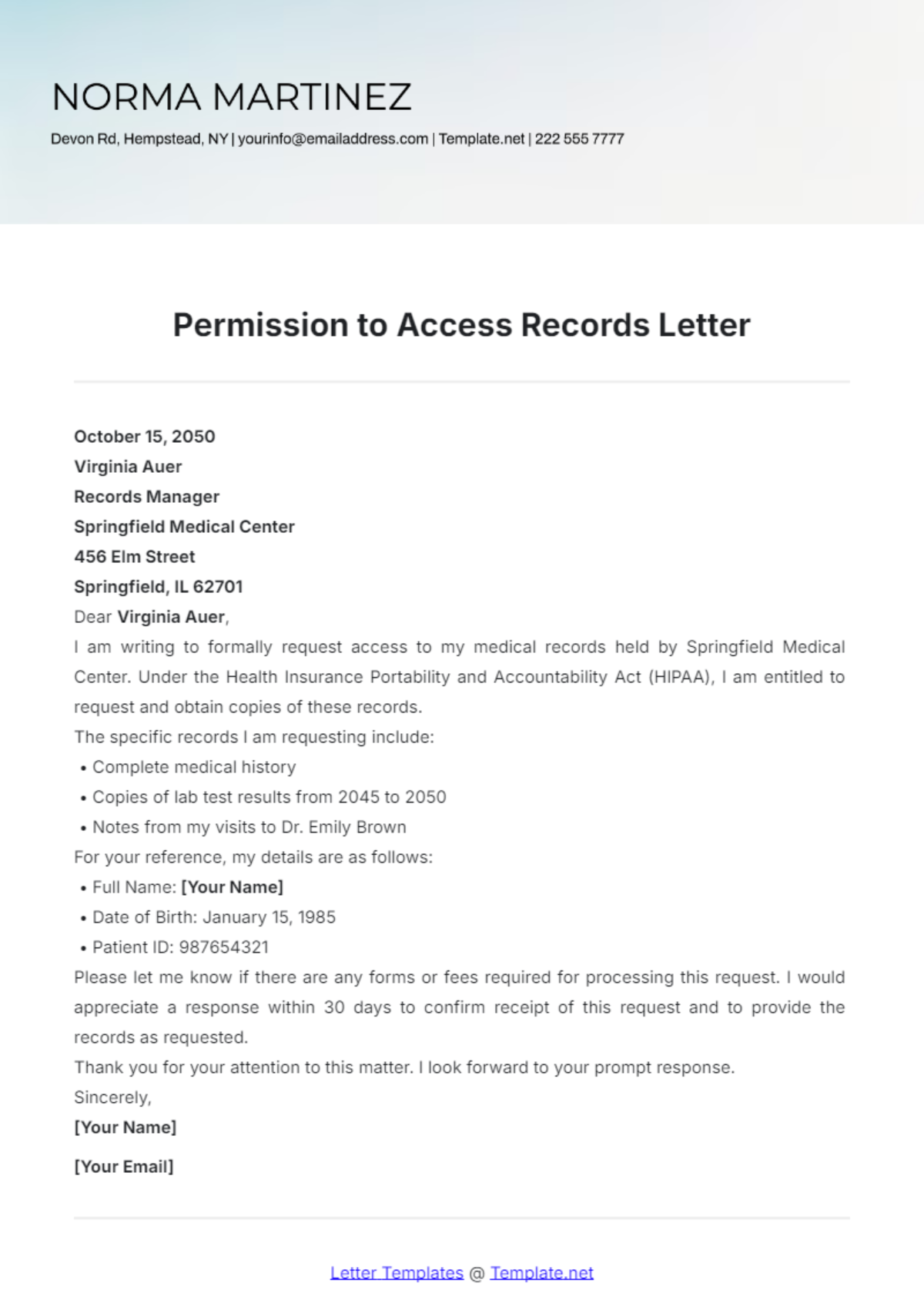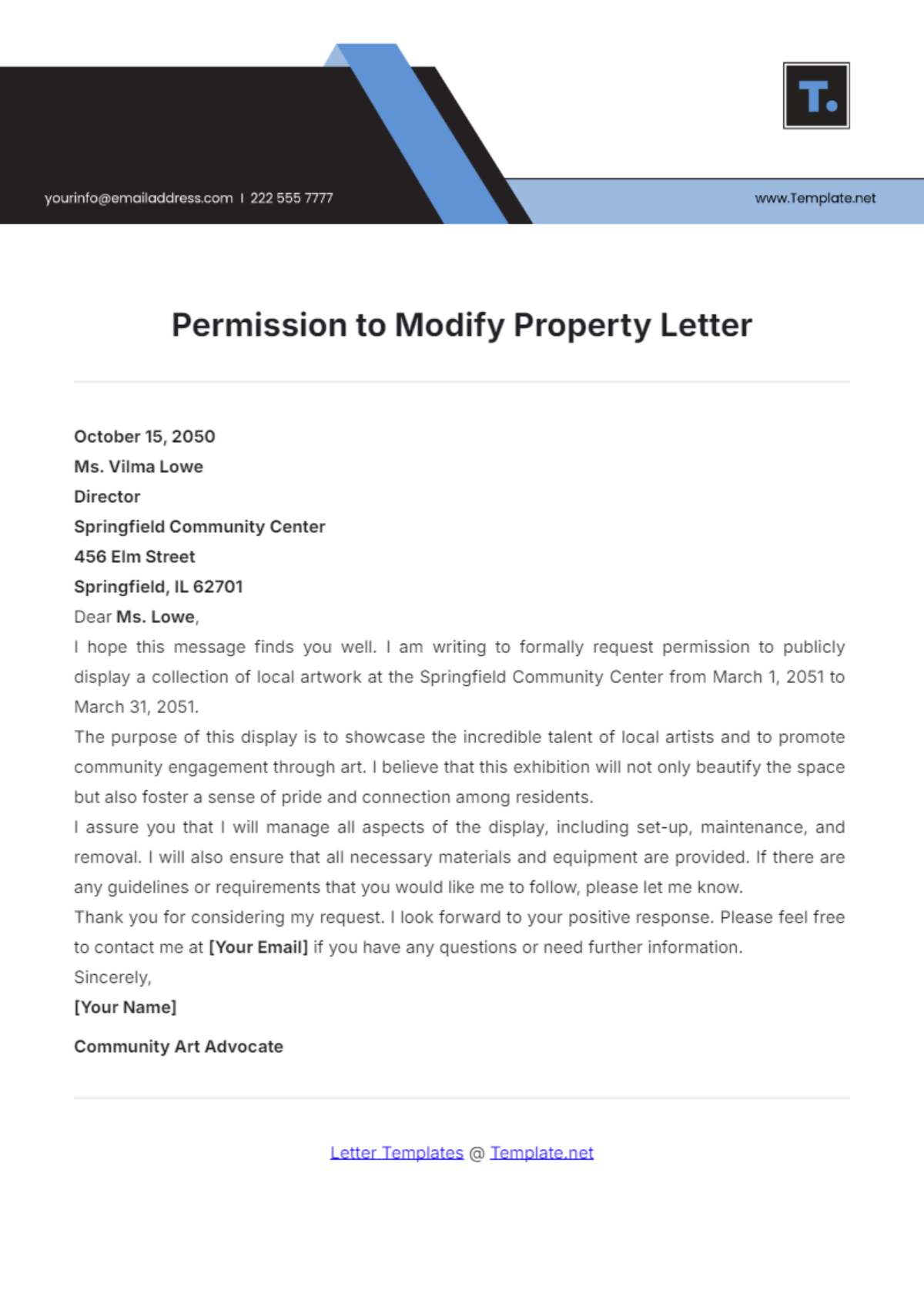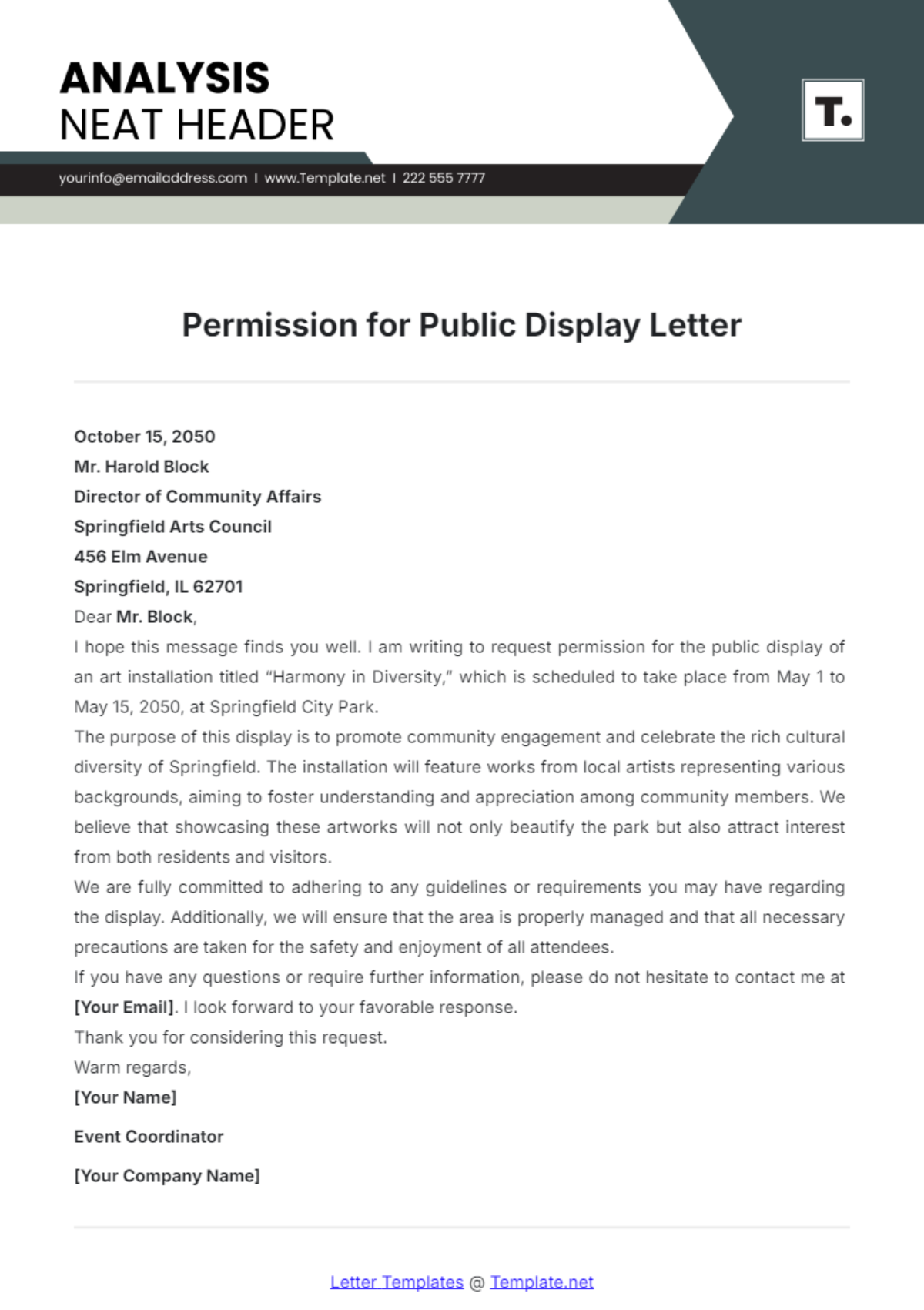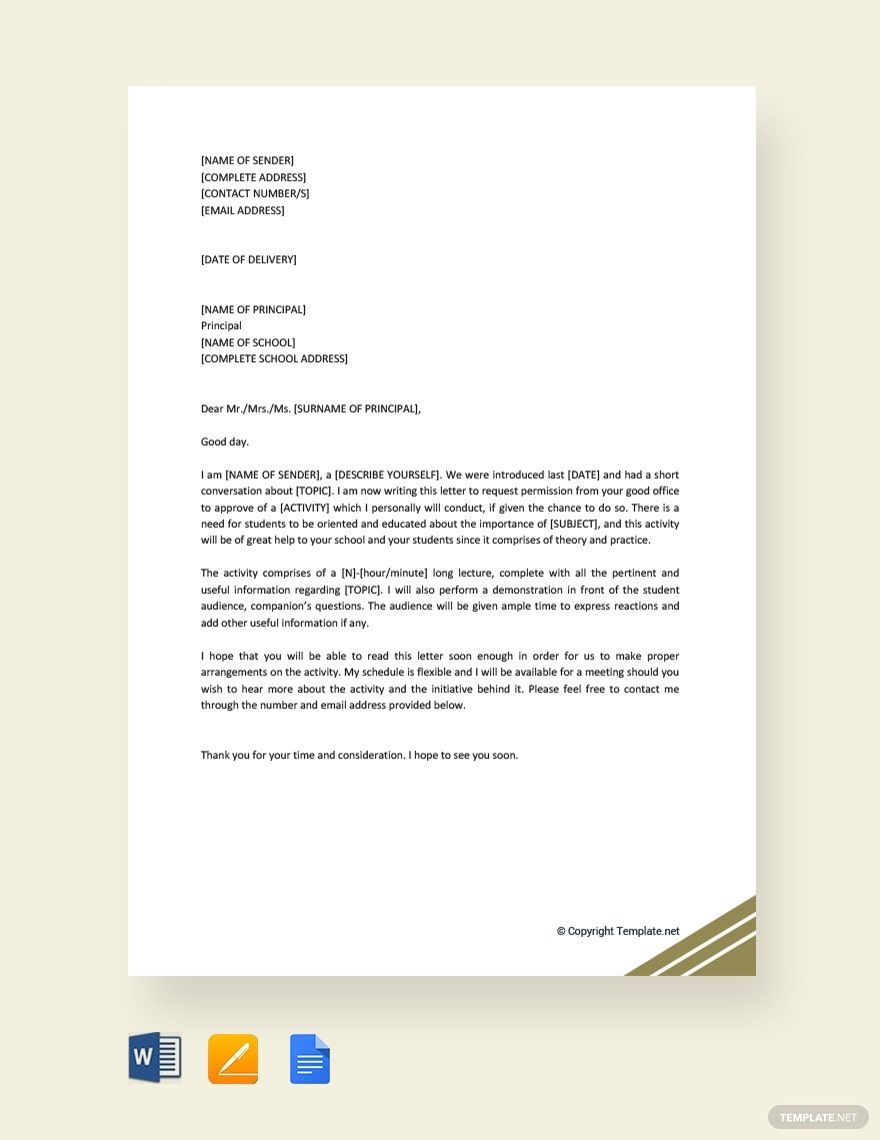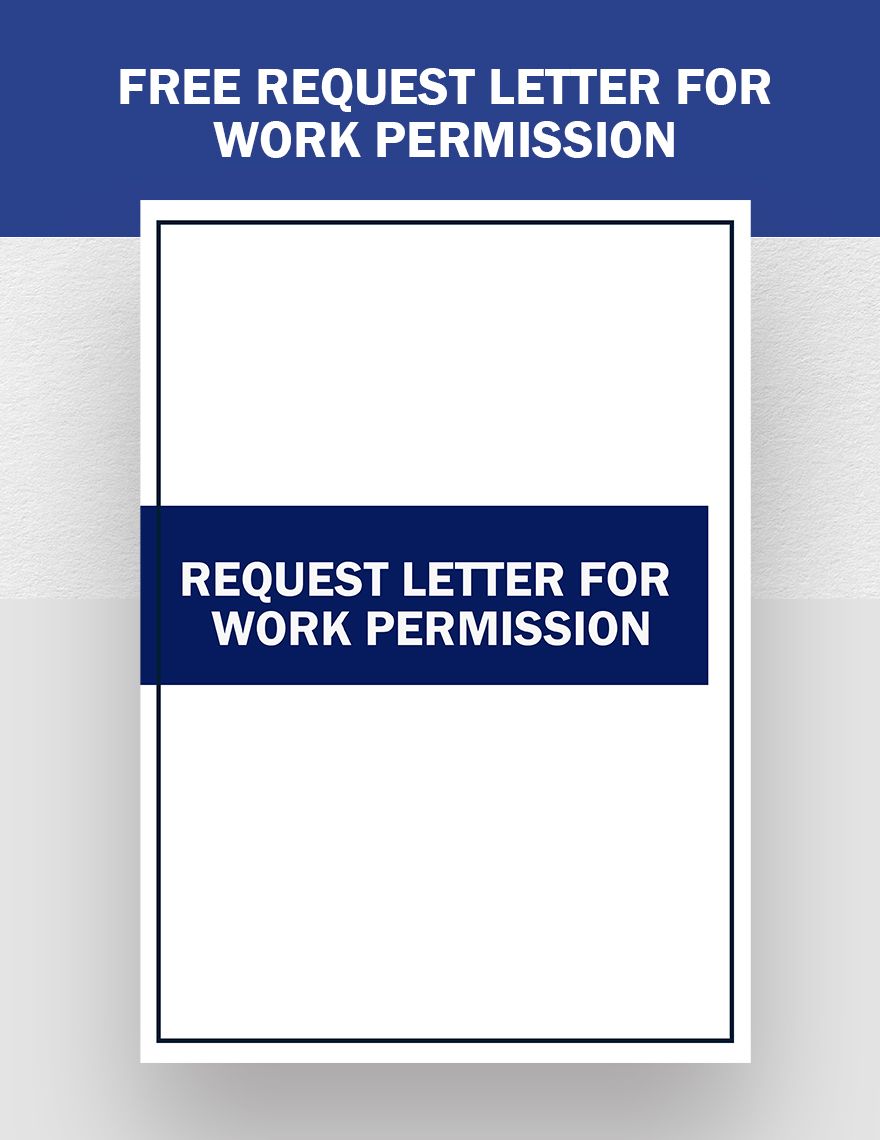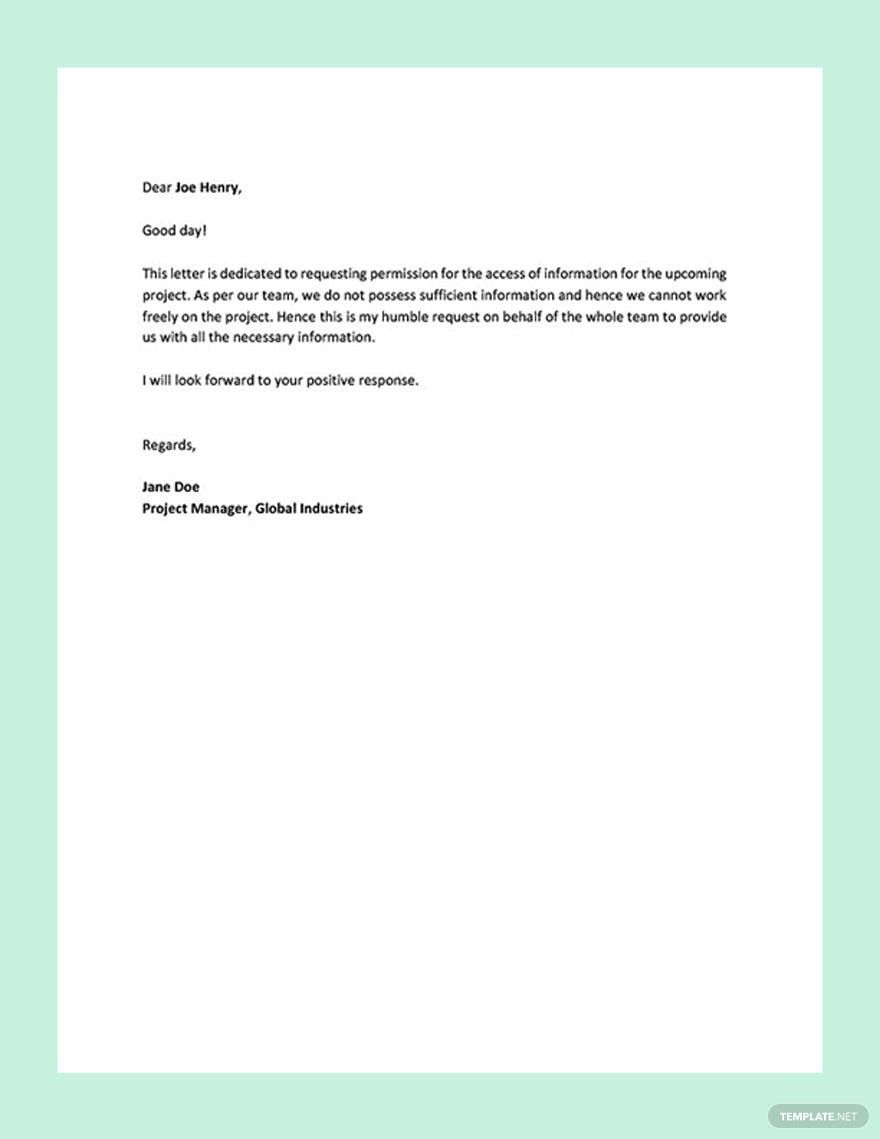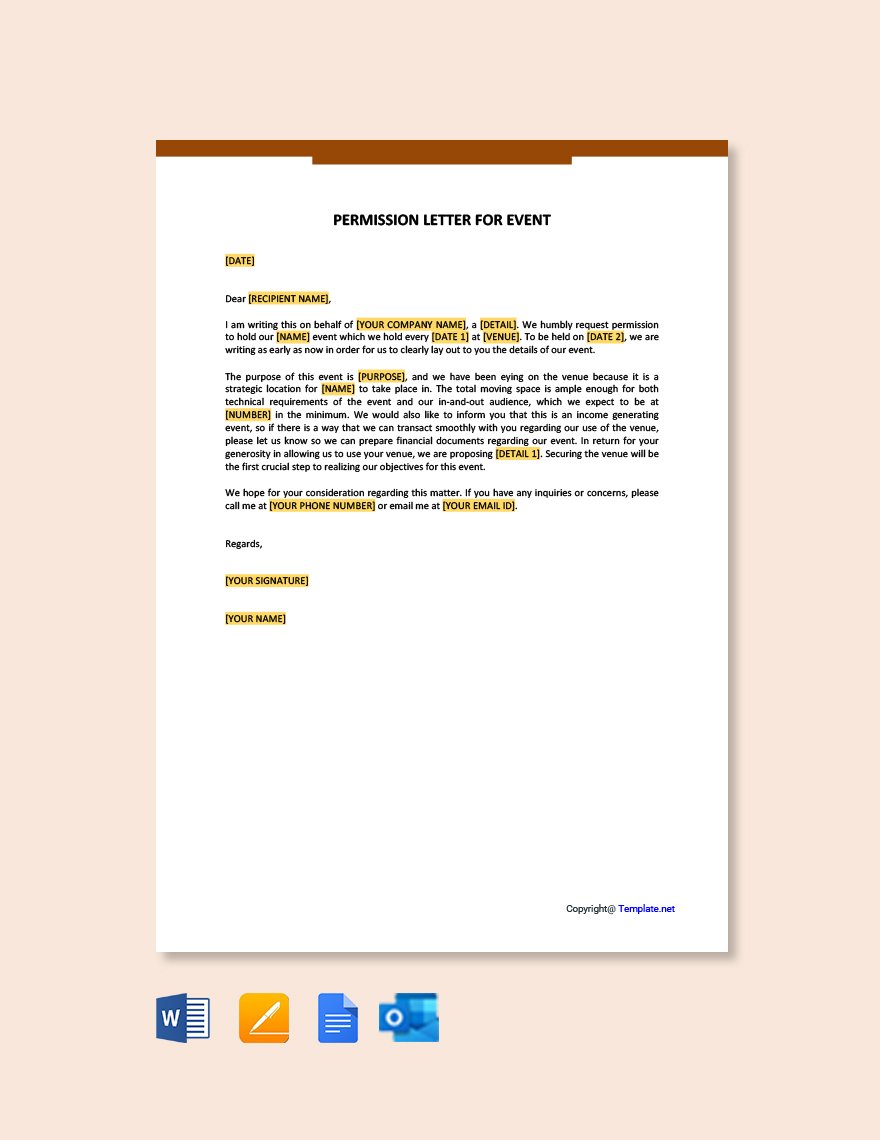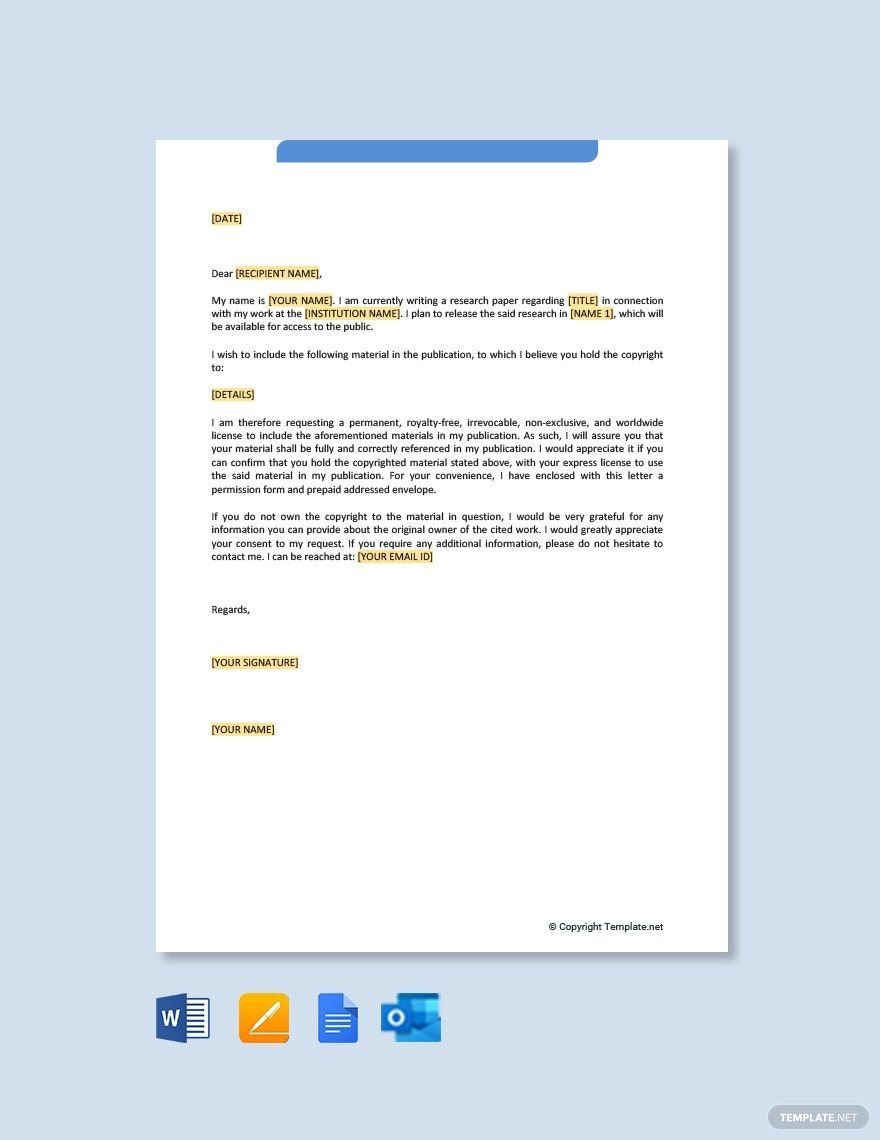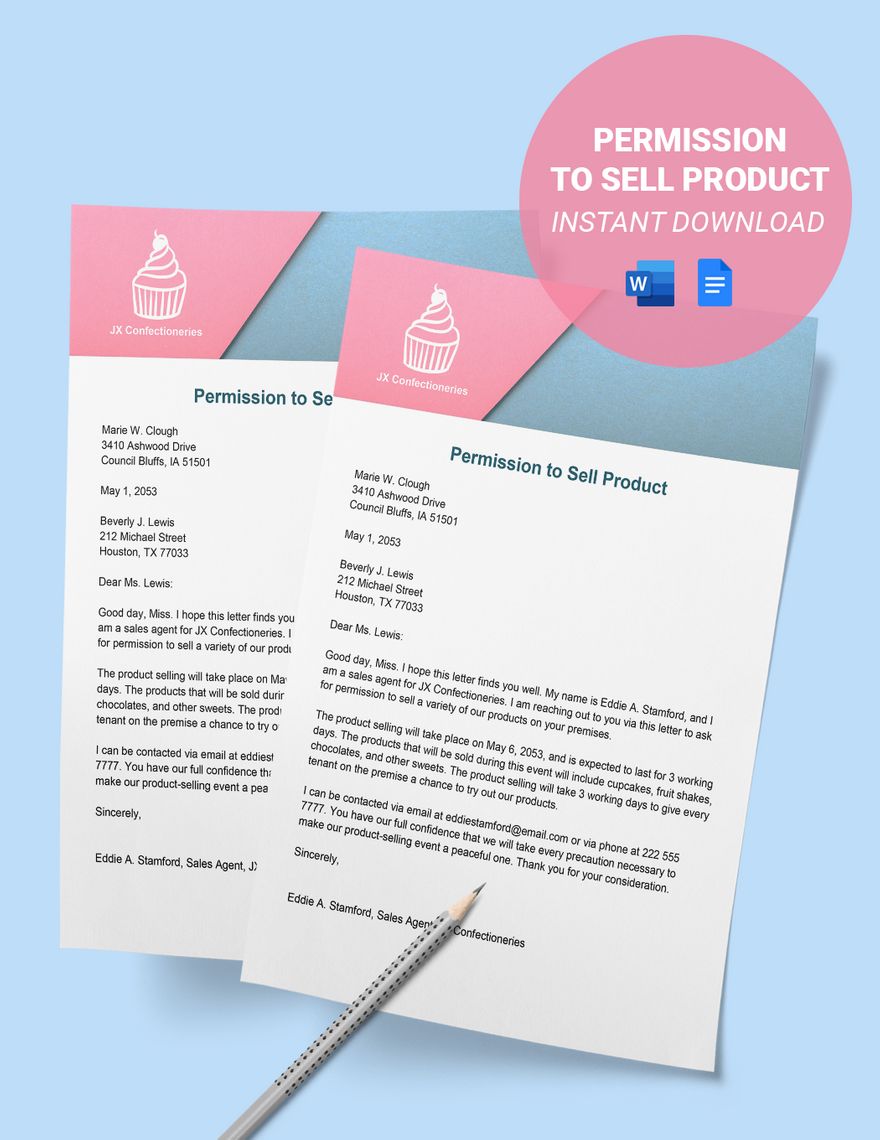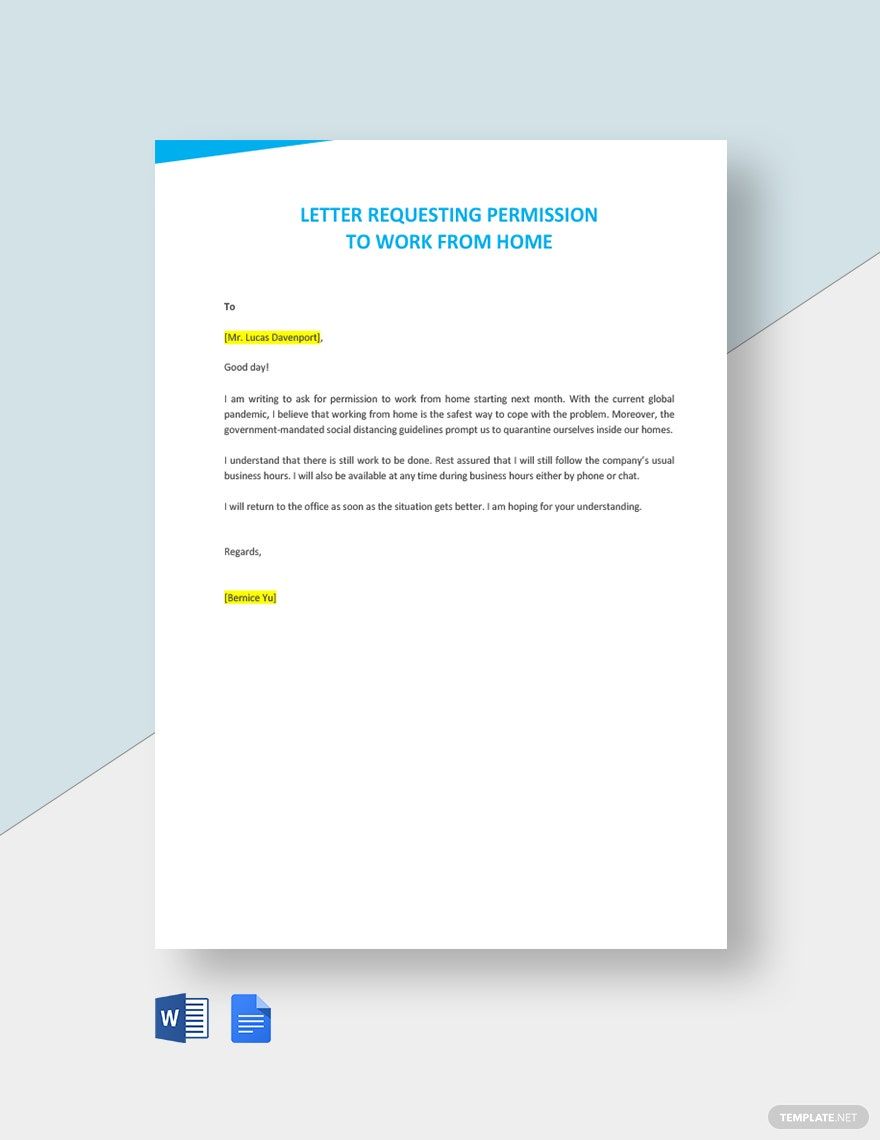Bring your Professional Correspondence to Life with Permission Letter Templates from Template.net
Keep your communication clear, concise, and effective with our Permission Letter Maker tool, ideal for business executives, educators, and anyone needing formal correspondence. Achieve confidence and professionalism by using our templates to request approvals or permissions effortlessly. Whether you're looking to promote a business partnership or invite a guest speaker to your event, Template.net has you covered. Our templates include necessary fields for dates, contact information, and personalized messages, ensuring precision and ease in every letter you produce. No prior experience is needed, as all templates offer professional-grade design with customizable layouts perfect for print or digital use, providing you with both immediate ease and valuable time savings.
Discover the many Permission Letter Templates we have on hand, offering the ultimate flexibility in creating documents suited to your requirements. Simply select a template, swap in your own assets, and tweak colors and fonts to match your brand's identity. Enhance your letters with advanced touches like drag-and-drop icons, graphic elements, or even animated effects, and make use of AI-powered text tools to ensure your message is both engaging and error-free. The possibilities are endless and require no specialized skills, making it a fun and hassle-free experience. With regularly updated templates, you’ll always find fresh designs to suit your needs. When you’re finished, download or share your permission letter via email or publish it to your social media channels, ensuring you connect with your audience where it matters most.
